#her name is Welsh and she was involved in a one shot last month
Explore tagged Tumblr posts
Text
Joseph “Joe” David Liebgott
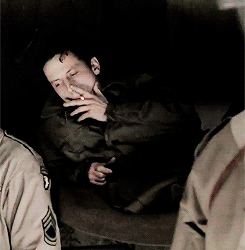
The Real Joseph Liebgott:
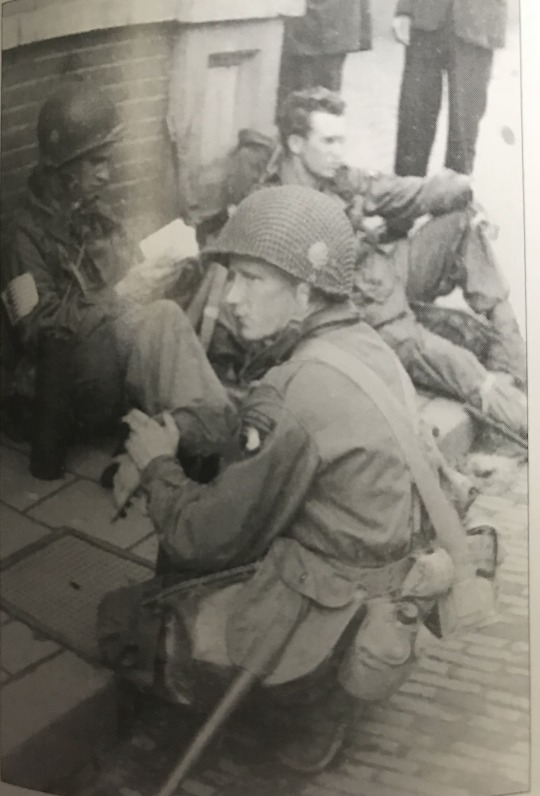
Joseph David Liebgott was born in Lansing, Michigan in May 17, 1915 to Joseph (Josef) Liebgott Sr and Mary. Joseph Liebgott Sr was of German descent, but he was born in Beresztocz, Hungary. Joe’s mother was Yugoslavian, but was reported as born in either Yugoslavia or Hungary I am not sure which one because records show both. On his father’s side his grandparents were Yugoslavian as well. On his mother’s sider, they seem to be from Hungary. His mother immigrated in 1909, Lieb’s father immigrated in 1912.
Below is a picture believed to be his parents.

He was the oldest of his siblings. He has four sisters: Mary, Elizabeth, Anna, and Barbara, and one brother, Stephen/Steffen . Both of his parents spoke German, which would later help him during the war. His father worked in the auto industry before they moved.
His family soon moved to California around 1927 and his dad became a barber. He was the oldest of his siblings, one brother and four sisters. He was extremely protective of his younger sisters
Liebgott and his siblings attended Catholic schools. This is where learned how to box and played soccer.
After high school, Liebgott drove a taxi around San Francisco. This career was temporary and he soon attended barber college.
He was also previously married before the war. He was married in July 31, 1933 to a woman named Frances. They had one child, David Albert together on February 27, 1934. But the couple soon divorced within a year, and he was living with his family again by 1940, where he was working on a forestry project. Meanwhile his ex-wife and son moved into her family. Here is Joe and Frances:
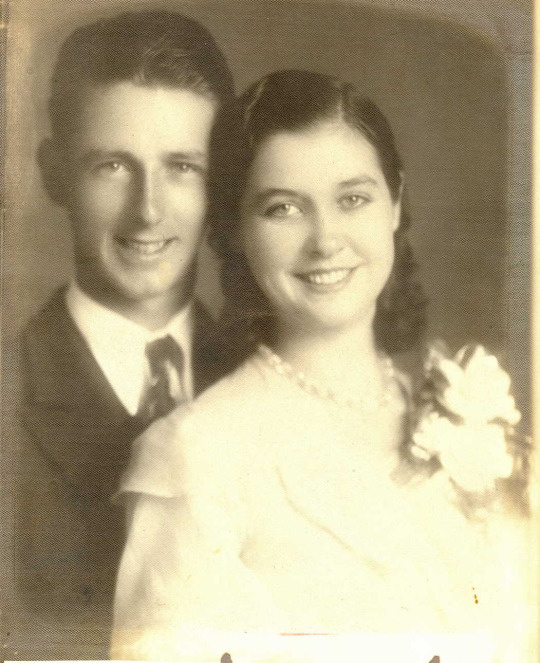
He eventually became a barber and this was his career when he enlisted at the age of 26. Liebgott chose the paratroopers to be able to make more money to be able to put a down payment on his parents’ house.
Included is a photo of Joe and his mother
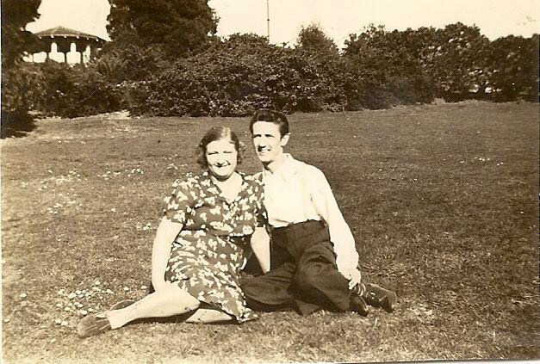
He has a Jewish service card, registered under his mother’s name. But his family denied he was Jewish, stating he was a German Roman Catholic. I’ll attach it below (filtered for safety).
In his draft card he is listed as 5 feet and 5 inches tall and was 109 pounds. He had blue-grey eyes and brown hair.
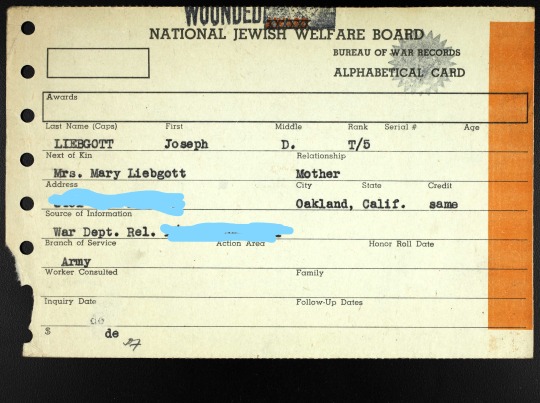

Malarkey remembers meeting Liebgott on his way to Toccoa where they became part of the original Toccoa men. Liebgott was trained under the harsh command of Herbert Sobel.
Liebgott didn’t talk much about the war, so there will be little but other’s words to put here. This is a photo from 1945 in France.
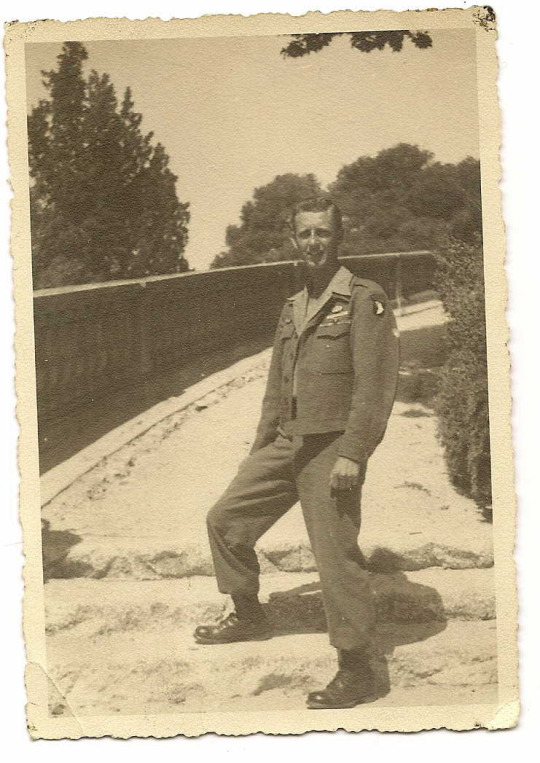
Right before the jump out of the airplane, he put his barber skills to use and gave a few of the men Mohawks.

He would jump out of the airplanes with the rest of the men on June 6, 1944. He received the bronze star for his bravery at Brecourt Manor, where he worked with Winters and several other men, Compton, Guarenere, Wynn, Lipton, Toye, Malarkey, and Ranney to destroy a German Battery firing on Utah Beach on the day of the D-Day Invasion.
He cut off the finger of a German that he had bayoneted and took the man’s ring near Carentan. At Carentan, Ed Tipper was seriously wounded after clearing out a house with Liebgott. Liebgott grabbed Tipper, yelled for a medic, and told Tipper that he’d be okay. Welsh and Lieb dragged Tipper into the street until Welsh could get him back to the aid station.

After Brecourt, Compton recalls a painful memory with Liebgott in his book, Call of Duty, Compton and Liebgott were patrolling along hedges at dusk. Across the way, in another set of hedges were two men. Both were dressed in German ponchos, one was holding a German gun. Assuming that these men were in fact German, he and Liebgott shot the men. Come to find out, when they checked their dog tags, they were not Germans. They were Americans. They had just killed fellow soldiers in friendly fire.
October 5, 1944. Winters sent a few Youmen out on patrol to take an outpost near a windmill. Liebgott and a few other men (James Alley among them) went with Sgt. Youmen. They sent one man ahead, to look out over the dike. The man spotted German machine guns. German voices approached the remaining boys. Lieb called out for the Youman, as we was trailing behind, only to have grenades thrown at him and the other men. Liebgott got minor wounds while James Alley received 32 shrapnel wounds in his left side, stretching from his face down. They’d run into a company of SS.

Liebgott was known for being rough with prisoners, the fighting that followed the injuries wit the SS company was a prime example of this. After Winters led his patrol to attack these Germans, in which during the fighting they lost William Dukeman, 7 Germans surrendered. The most famous story of Liebgott is as follows, in Dick Winter’s words.
As Winters explains in his book, “Tech/5 Joseph D. Liebgott had been slightly wounded in the arm, but he was ambulatory so I assigned him the mission of escorting seven German prisoners to the rear. Liebgott had earned the reputation of being one of Easy’s best combat soldiers, but we had all heard stories that he was very rough on prisoners. Liebgott was one of Easy Company’s “killers,” so I deemed it appropriate to take a bit of caution. When he heard me say, “Take the prisoners back to the battalion command post,” he replied. “Oh, boy! I’ll take care of them.” In his exuberance, Liebgott stood up and paced back and forth and he was obviously very nervous and concerned. I stopped him in his tracks. “There are seven prisoners and I want seven prisoners turned over to battalion.” Liebgott was highly incensed and started to throw a tantrum.Somewhat unsure of how he would react, I then dropped my M-1 to my hip, threw off my safety, and said, Liebgott, drop all your ammunition and empty your rifle.” There was much grumbling and swearing, but he did as I had ordered. “Now,” I said, “you can put one round in your rifle. If you drop a prisoner, the rest will jump you.””
Liebgott got all 7 prisoners back.

Joe would recover in a hospital in England with Webster, but he was back before Bastogne. Here is the record for that:
Name:Joseph D Liebgott Race:White, includes Mexican (White) Rank:Enlisted Man Admission Age:29 Birth Date:abt 1915 Admission Date:Oct 1944 Discharge Date:Nov 1944 Military Branch:Infantry, Parachute Troops or Units Diagnosis:FirstLocation: Ulna, generally; CausativeAgent: Artillery Shell, Fragments, Afoot or unspecified Type of Injury:Casualty, battle Injured in Line of Duty:In line of duty Type of Discharge:Duty Length of service:2 Year(s), 6 Month(s)
In Bastogne, Winters made him a runner to get away from the tension and constant stress of fighting. One story of his service was outside of Foy is the battle of Noville, he and Earl Hale ducked into a barn and took 6 SS officers prisoner. Outside the barn, a shell exploded. One of the SS officers took this as an opportunity and jumped Hale. He slit Hale’s throat. Liebgott instantly shot and killed the officer. He then killed the others. Hale survived miracuously.
At some point, before the end of the war, Liebgott became first platoon’s interpreter-radioman. This was because he could speak some German. But Webster claimed in his book that the German’s didn’t understand his Yiddish.
He was with Webster when they took Hitler’s Nest. They spent their time drinking Hitler’s alcohol together with a few other men. He was living with Headquarters Company while there.
Of course, the war came to an end and everyone who wanted to was discharged.
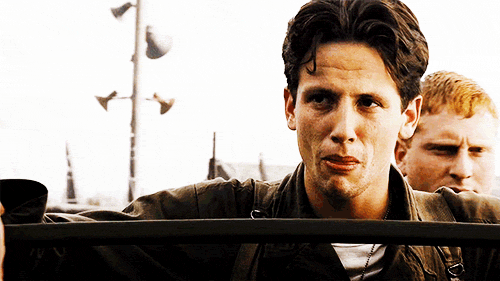
Over the course of the war, Lieb was injured 3 times and won 3 purple hearts. He refused one because the wound was “just a scratch”. He would receive partial disability for his wounds.
When he returned home, he disappeared for two years. Eventually he was found living in Yuma, California. He didn’t come to reunions, even when offered multiple times. His father simply told the vets “not to mess with him”.
After the war, Liebgott was a barber for a short time. He married again to a woman named Peggy in 1949. They had eight kids together. Making Lieb’s total children come to nine, although he was mostly involved with the last eight. They lived on a barber’s salary, not leaving much room for fun activities but everyone had their basic needs met. He often only had one day a week off and would take his kids to a Long Beach pike, where they would visit an amusement park.
Liebgott liked to bet on the ponies at the racetrack. Every other sunday, him and his boss would take the boss’ airplane down to Mexico.
He is believed to have never contacted anyone from his days in Easy Company. He just wanted to get away from the war.

The Liebgotts divorced in April of 1969. She remarried, but he never did. He was described as really quiet by his granddaughter.
She states, in Marcus Brotherton’s book Company of Heroes (pages 120-121) “His hands looked like a man who worked with his hands, sunspots all over. He absolutely loved his grandkids. he had false teeth that he flipped out of his mouth and smiled, threatening to kiss us with his gums. He was a tickler. He never held babies over his shoulder...because he wanted them to see everything....He didn’t have a lot of money - I’m pretty sure all he had was his veteran’s benefits...He made all of the bikes for the grandkids by scouring thrift stores for dilapidated bikes. He stripped the bikes down to their frame, fixed and assembled them as good as new. He let each grandchild pick the color of new paint for his or her bike....I always knew the specific foods we were going to eat at his house. He had bite-sized candy bars and store brand soda-pop. There was no drinking water in his house. He always lived in rental houses...”
He was very neat, and keep his house and appearance orderly. However, he was always working in the garage, so the house had black smudges from the dirt on his hands.
However, Liebgott was not perfect. While he hated the Nazis, he was also seen as a bigot, maybe even harsher. Rhonda explained that he threw the n word around like it wasn’t a big deal. He blamed the wrong goings of the world on different ethnic groups. Rhonda started seeing a guy from El Salvador, he asked if her partner “even spoke English?”
As he grew older, Lieb got sicker. He eventually lost the use of one of his legs from a hernia. He was confined to a chair and hated any new technology. He was stuck in a wheelchair, angry when he would hit a cabinet.
Lieb did not talk about his military career until towards his end. He would spend time with his son Jim, watching tv talking about the war during a war movie. He would talk about the war when he was mad, possibly angry at himself for doing a lot of killing and other things that people his age shouldn’t have to do.
In 1992, Liebgott developed a tumor in his neck, near his windpipe that would cause a lot of pain. Jim took him to the hospital on Father’s Day. Shortly later, on June 28, 1992 Liebgott died. He was against a funeral and just wanted to be cremated, so his family did as he wished. They still have his ashes and letters and the Toccoa book.

#Real Life Band of Brothers#real band of brothers#joe liebgott#joseph liebgott#band of brothers#Band of Brothers fandom
337 notes
·
View notes
Text
Five times two of the Marauders made out when drunk and one time it was sober
cowboy like me - Taylor Swift / Your Song - from “Moulin Rouge”
ONE: James & Sirius
James and Sirius are the first of the Marauders to make out while drunk (what an honor, amiright?). They’re at a typical Gryffindor party when Spin the Bottle turns into something more. They stagger from the couch upstairs, not noticing Remus still on his bed in their dorm, and collapse back onto the bed in giggles.
Remus leaves without their acknowledgement, and they keep kissing until James’ hand slides under Sirius’ shirt and he wrenches back in panic. James calms him down while holding his hands and Sirius confesses he never wants to do anything like that with anyone.
James just smiles and runs his fingers through Sirius’ hair, cupping Sirius’ jaw and kissing him again as he mumbles, “Love you no matter what, Pads.” Sirius grins, kissing him harder and falling asleep beside him when the night is done.
(They tell the others they’re dating the next day, their hands wrapped nervously in between them. Remus says, “I figured as much,” and opens a book and starts reading, which confuses them both, but Peter’s excited questions soon distract them, though James is not blind to how Sirius is watching Remus still, whose knuckles are white from how hard he’s holding the book in his hands.)
TWO: Peter & Regulus (+ James & Sirius)
They all get drunk, just the seven of them, a bit after Sirius has started calling himself Mr. Potter. Remus is sitting alone on the couch, his face buried in his arms after he can no longer keep it from crumpling with hurt, and Lily is tangled around Severus and pressing kisses to his neck as she tells him stories and he braids her hair. James and Sirius are making out on top of the table in front of the fireplace, and Regulus is by the entrance door, hands tangled in Peter’s hair as he kisses him harder than he’s ever kissed anyone, the headline MUGGLE AMIR LEVIS KILLED IN LONDON BY SUSPECTED DEATH EATERS leaving a bitter taste in his mouth.
When they wake up the next morning in each other’s arms, they blink owlishly at each other before Regulus smiles and bites his lip and looks away while Peter grins too and then they’re both laughing so hard they’re crying, too happy to even breathe.
Sirius curses Peter out for daring to fall for his brother, but says nothing about them holding hands the rest of the day. Remus makes a scathing comment about Sirius not knowing who to fall for if they were right fucking in front of him, and Sirius stares and blinks and stares and blinks and stares and blinks before finally murmuring, “Of course, Moony,” and shutting up for the rest of the day, testy to James’ touch.
THREE: Lily & Remus (+ Sirius & Remus)
This time, Remus is drunk because he’s lost any and all hope after Sirius and James danced on the table in the Great Hall at breakfast and laughed and kissed like no one else in the world mattered but each other. Lily joins him because she and Severus just broke up over her growing feelings for James, and it’s not like she missed their little display that morning. They’re pretty drunk when she finally surges forward and kisses him, pressing him back into the couch insistently.
They’re still heavily making out when Sirius and James clammer into the common room, both gaping in shock at the sight that awaits them. Lily pulls back and waves cheerily at James, falling on her back with her hair splayed out and shouting, “Jamie! Jamie, Jamie, Jamie, I love you! You’re the bestest ever!” and James tries not to be endeared when he smiles and helps her up from the couch and to her room.
Sirius heads for Remus with his hands reaching out, cautious, and Remus drops his hand from his red-bitten lips and shoves himself as far back from Sirius as he can get, shaking his head. Hugging the wine bottle to his chest, he drips venom from his lips, years of pent-up hurt coming to light: “Don’t fucking want you, Black. Hurt me. All you do is hurt me.”
Sirius’ face twists in hurt and he murmurs, “I’m sorry, Remy.”
Remus scoffs, huffing as he stumbles up from the couch and to their dorm, slapping Sirius’ hands away any time he tries to touch him. Collapsing back on his bed, he draws the curtains around him, but Sirius peeks his head through, asking softly, “How am I hurting you? How can I fix it?”
Remus blinks for a minute and then smirks, tugging Sirius down by the tie and dragging him into a filthy kiss. Shoving him back before he even has time to realize what’s happening, Remus mutters, “You may be an idiot, Sirius, but you’re not stupid. Figure it out.”
Sirius sits there and blinks as Remus rolls over and makes himself comfortable, but leaves when he sees Remus blinking back tears and hears his nearly inaudible, “Leave me alone. Please.”
The next morning, Remus and Lily announce they’re dating without any of the usual cheer and joy involved in new relationships. Their hands are barely laced together. Severus storms out of the Great Hall and James runs after him while Sirius stares in shock and finally manages through a dry mouth, “Congratulations.”
FOUR: Severus & Regulus
They’re playing Truth or Dare late one night. They know Remus is wasted because he’s actually answering their questions about werewolves during Truth. He and Lily are leaning into each other, and Sirius has his fingers tangled in James’. Regulus chooses a dare from Remus, and he tells him to make out with Severus. Severus turns bright red but accepts it when Regulus tugs him in by the tie, kissing him filthily.
Sirius looks up at James, not wanting to see his brother making out with someone, and James smiles down at him softly. Sirius’ heart skips in his chest with affection, but it feels different than it has before when James leans down to kiss him.
“You okay?” James murmurs, and Sirius’ eyes flick to Remus, whose face is carefully blank and eyes are caught on Sirius’.
Sirius swallows and nods when Peter shouts, “Okay, you can stop now!”
Regulus pulls back from Severus’s mouth and kisses his cheek just for good measure, turning back to a stewing Peter. He then makes his way over to his unofficial boyfriend of a few moths and straddles him, cupping his face in his hands and kissing him as Lily whoops and Sirius smiles proudly. He notices Severus and James glancing at each other, but says nothing, leaning further into James’ side when Regulus starts speaking: “Don’t you worry about me, Petey. I’m always gonna be right here for you.”
Peter grins and kisses him again, but Sirius is frozen, ears ringing as he’s shot back to a year or so ago and him and Remus tangled up together in bed…
“Don’t you worry about me, Padfoot. I’m always gonna be right here, waiting for you.”
Sirius realizes, with a start and a pang to his heart, that Remus is in love with him.
(Took him long enough.)
FIVE: James & Remus
Remus’ most recent full moon kind of sucked, so they’re all drinking to cheer him up. He and Lily broke up like a week ago, and she’s been back with Severus for most of that week, settled in his lap and snoring against his shoulder. Regulus and Peter are passed out in the corner, and Severus is staring at James, who is staring right back.
And then there’s Remus, laughing at one of James’ stupid jokes and his eyes are sparkling in a way they haven’t in months, and Sirius wonders if Remus has moved on from him. But he doesn’t have much time to dwell on it because Remus is wearing a Kiss Me I’m Irish shirt (which is stupid, he’s Welsh) and James jokes, “Well, if you insist!” and leans down making kissy faces. He doesn’t anticipate Remus dragging him down into a deep kiss, but soon enough he’s laughing it off, even as Sirius feels his hands clench into fists by his sides.
He stands and storms upstairs, and James follows him, shouting his name. Banging open the door of their dorm room, Sirius waits until James has come in and shut it before slamming him against it and kissing him stupid. Then, suddenly, he pulls back, his fingertips to his lips as he backs away to his bed, falling back onto it.
“You okay?” James asks, wandering over, and Sirius shrugs, his eyes filling up with tears.
“I felt nothing,” he rasps, taking James’ hand. “Back there, down there, I was so fucking jealous, I wanted to tear you two apart. But I just kissed you like we were about to die and I felt nothing.”
James hums. Sirius looks up at him, whispering, “I love you, Jamie.”
James leans down and pecks his lips with a soft smile, saying, “I love you too, Siri. But maybe you’re right.”
Sirius lets out a wet laugh and sits up, burying his face in his hands.
“I’m in love with him,” he says as James sits up and pulls him close. “I love him, Jamie.”
James kisses the top of his head.
“I know.”
ONE: Sirius & Remus
The common room is mostly empty now. Lily dragged Severus and James up to bed in their dorm room a little while back, and Regulus and Peter weren’t far behind. The record player is still playing Moulin Rouge, because it’s Marlene’s favorite musical and the Gryffindor Quidditch-win parties never last nearly as long as you’d think. So it’s still playing even when all that’s left in the common room is crumpled confetti and streams and cups, and Sirius and Remus.
Remus is sitting on the couch, his knees pulled to his chest and his nose buried in a book as Sirius wanders around the room picking up trash. But he keeps glancing up at Sirius, and Sirius can’t help but look over at him. And then they’re staring at each other, Remus blushing pink to the tips of his ears, and the song on the record player changes to Your Song.
Sirius takes a deep breath and starts singing, walking tentatively closer to Remus with a hand outstretched in offer. On one knee in front of Remus, Sirius sings, “Yours are the sweetest eyes I’ve ever seen!” and Remus takes his hand, quick as a shot.
Sirius beams, pulling Remus up into a dance. They spin around the room, dancing and singing and smiling and laughing and spinning until the song starts to ebb out, and Remus comes crashing back into Sirius’ arms from a twirl. Their eyes flick down to each other’s lips and then up to meet, and Sirius grins as Remus smiles shyly.
Leaning in, his hand on Remus’ cheek, Sirius rasps, “Not a joke, Moony. Not drunk, either. I’m just mad as the Hatter about you.”
Remus beams, flushing bright red as he leans in the rest of the way and kisses Sirius full on the mouth.
(They announce they’re dating the next morning to whoops and cheers. Half of the school is grumbling in annoyance about their losses (Gryffindor, Slytherin) while the other half is grinning smugly and waving around their newly won bags of sickles (Hufflepuff, Ravenclaw). Remus blushes in embarrassment, but then Sirius is kissing him again and Remus couldn’t give two shits if the bloody Minister was watching, he’s kissing Sirius Black goddamnit and he’s not sure death herself could make him stop.)
#wolfstar#marauders#harry potter#brief and non-endgame prongsfoot#james x lily x severus#the crack ship of peter x regulus because why the fuck not#drunk marauders#truth or dare#make good choices#pining#drink responsibly#i can't listen to your song without thinking of sirius serenading remus so#i decided to make it so you can't either#have a nice day y'all
23 notes
·
View notes
Text
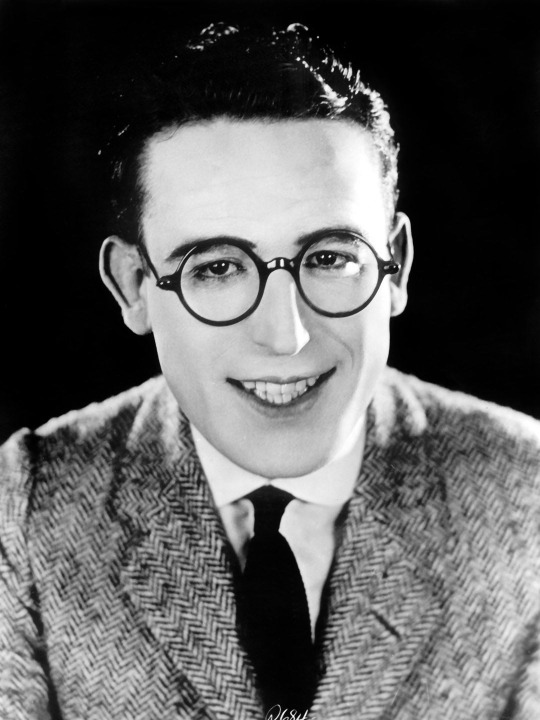
Harold Clayton Lloyd Sr. (April 20, 1893 – March 8, 1971) was an American actor, comedian, and stunt performer who appeared in many silent comedy films.
Lloyd is considered alongside Charlie Chaplin and Buster Keaton as one of the most influential film comedians of the silent film era. Lloyd made nearly 200 comedy films, both silent and "talkies", between 1914 and 1947. His bespectacled "Glasses" character[2][3] was a resourceful, success-seeking go-getter who matched the zeitgeist of the 1920s-era United States.
His films frequently contained "thrill sequences" of extended chase scenes and daredevil physical feats. Lloyd hanging from the hands of a clock high above the street (in reality a trick shot) in Safety Last! (1923) is considered one of the most enduring images in all of cinema. Lloyd performed the lesser stunts himself, despite having injured himself in August 1919 while doing publicity pictures for the Roach studio. An accident with a bomb mistaken as a prop resulted in the loss of the thumb and index finger of his right hand (the injury was disguised on future films with the use of a special prosthetic glove, and was almost undetectable on the screen).
He was far more prolific than Chaplin (releasing 12 feature films in the 1920s while Chaplin released just four), and made more money overall ($15.7 million to Chaplin's $10.5 million).
Lloyd was born on April 20, 1893 in Burchard, Nebraska, the son of James Darsie Lloyd and Sarah Elisabeth Fraser. His paternal great-grandparents were Welsh.[6] In 1910, after his father had several business venture failures, Lloyd's parents divorced and his father moved with his son to San Diego, California. Lloyd had acted in theater since a child, but in California he began acting in one-reel film comedies around 1912.
Lloyd worked with Thomas Edison's motion picture company, and his first role was a small part as a Yaqui Indian in the production of The Old Monk's Tale. At the age of 20, Lloyd moved to Los Angeles, and took up roles in several Keystone Film Company comedies. He was also hired by Universal Studios as an extra and soon became friends with aspiring filmmaker Hal Roach. Lloyd began collaborating with Roach who had formed his own studio in 1913. Roach and Lloyd created "Lonesome Luke", similar to and playing off the success of Charlie Chaplin films.
Lloyd hired Bebe Daniels as a supporting actress in 1914; the two of them were involved romantically and were known as "The Boy" and "The Girl". In 1919, she left Lloyd to pursue her dramatic aspirations. Later that year, Lloyd replaced Daniels with Mildred Davis, whom he would later marry. Lloyd was tipped off by Hal Roach to watch Davis in a movie. Reportedly, the more Lloyd watched Davis the more he liked her. Lloyd's first reaction in seeing her was that "she looked like a big French doll".
By 1918, Lloyd and Roach had begun to develop his character beyond an imitation of his contemporaries. Harold Lloyd would move away from tragicomic personas, and portray an everyman with unwavering confidence and optimism. The persona Lloyd referred to as his "Glass" character (often named "Harold" in the silent films) was a much more mature comedy character with greater potential for sympathy and emotional depth, and was easy for audiences of the time to identify with. The "Glass" character is said to have been created after Roach suggested that Harold was too handsome to do comedy without some sort of disguise. To create his new character Lloyd donned a pair of lensless horn-rimmed glasses but wore normal clothing; previously, he had worn a fake mustache and ill-fitting clothes as the Chaplinesque "Lonesome Luke". "When I adopted the glasses," he recalled in a 1962 interview with Harry Reasoner, "it more or less put me in a different category because I became a human being. He was a kid that you would meet next door, across the street, but at the same time I could still do all the crazy things that we did before, but you believed them. They were natural and the romance could be believable." Unlike most silent comedy personae, "Harold" was never typecast to a social class, but he was always striving for success and recognition. Within the first few years of the character's debut, he had portrayed social ranks ranging from a starving vagrant in From Hand to Mouth to a wealthy socialite in Captain Kidd's Kids.
On Sunday, August 24, 1919, while posing for some promotional still photographs in the Los Angeles Witzel Photography Studio, he picked up what he thought was a prop bomb and lit it with a cigarette. It exploded and mangled his right hand, causing him to lose a thumb and forefinger. The blast was severe enough that the cameraman and prop director nearby were also seriously injured. Lloyd was in the act of lighting a cigarette from the fuse of the bomb when it exploded, also badly burning his face and chest and injuring his eye. Despite the proximity of the blast to his face, he retained his sight. As he recalled in 1930, "I thought I would surely be so disabled that I would never be able to work again. I didn't suppose that I would have one five-hundredth of what I have now. Still I thought, 'Life is worth while. Just to be alive.' I still think so."
Beginning in 1921, Roach and Lloyd moved from shorts to feature-length comedies. These included the acclaimed Grandma's Boy, which (along with Chaplin's The Kid) pioneered the combination of complex character development and film comedy, the highly popular Safety Last! (1923), which cemented Lloyd's stardom (and is the oldest film on the American Film Institute's List of 100 Most Thrilling Movies), and Why Worry? (1923). Although Lloyd performed many athletic stunts in his films, Harvey Parry was his stunt double for the more dangerous sequences.
Lloyd and Roach parted ways in 1924, and Lloyd became the independent producer of his own films. These included his most accomplished mature features Girl Shy, The Freshman (his highest-grossing silent feature), The Kid Brother, and Speedy, his final silent film. Welcome Danger (1929) was originally a silent film but Lloyd decided late in the production to remake it with dialogue. All of these films were enormously successful and profitable, and Lloyd would eventually become the highest paid film performer of the 1920s. They were also highly influential and still find many fans among modern audiences, a testament to the originality and film-making skill of Lloyd and his collaborators. From this success he became one of the wealthiest and most influential figures in early Hollywood.
In 1924, Lloyd formed his own independent film production company, the Harold Lloyd Film Corporation, with his films distributed by Pathé and later Paramount and Twentieth Century-Fox. Lloyd was a founding member of the Academy of Motion Picture Arts and Sciences.
Released a few weeks before the start of the Great Depression, Welcome Danger was a huge financial success, with audiences eager to hear Lloyd's voice on film. Lloyd's rate of film releases, which had been one or two a year in the 1920s, slowed to about one every two years until 1938.
The films released during this period were: Feet First, with a similar scenario to Safety Last which found him clinging to a skyscraper at the climax; Movie Crazy with Constance Cummings; The Cat's-Paw, which was a dark political comedy and a big departure for Lloyd; and The Milky Way, which was Lloyd's only attempt at the fashionable genre of the screwball comedy film.
To this point the films had been produced by Lloyd's company. However, his go-getting screen character was out of touch with Great Depression movie audiences of the 1930s. As the length of time between his film releases increased, his popularity declined, as did the fortunes of his production company. His final film of the decade, Professor Beware, was made by the Paramount staff, with Lloyd functioning only as actor and partial financier.
On March 23, 1937, Lloyd sold the land of his studio, Harold Lloyd Motion Picture Company, to The Church of Jesus Christ of Latter-day Saints. The location is now the site of the Los Angeles California Temple.
Lloyd produced a few comedies for RKO Radio Pictures in the early 1940s but otherwise retired from the screen until 1947. He returned for an additional starring appearance in The Sin of Harold Diddlebock, an ill-fated homage to Lloyd's career, directed by Preston Sturges and financed by Howard Hughes. This film had the inspired idea of following Harold's Jazz Age, optimistic character from The Freshman into the Great Depression years. Diddlebock opened with footage from The Freshman (for which Lloyd was paid a royalty of $50,000, matching his actor's fee) and Lloyd was sufficiently youthful-looking to match the older scenes quite well. Lloyd and Sturges had different conceptions of the material and fought frequently during the shoot; Lloyd was particularly concerned that while Sturges had spent three to four months on the script of the first third of the film, "the last two-thirds of it he wrote in a week or less". The finished film was released briefly in 1947, then shelved by producer Hughes. Hughes issued a recut version of the film in 1951 through RKO under the title Mad Wednesday. Such was Lloyd's disdain that he sued Howard Hughes, the California Corporation and RKO for damages to his reputation "as an outstanding motion picture star and personality", eventually accepting a $30,000 settlement.
In October 1944, Lloyd emerged as the director and host of The Old Gold Comedy Theater, an NBC radio anthology series, after Preston Sturges, who had turned the job down, recommended him for it. The show presented half-hour radio adaptations of recently successful film comedies, beginning with Palm Beach Story with Claudette Colbert and Robert Young.
Some saw The Old Gold Comedy Theater as being a lighter version of Lux Radio Theater, and it featured some of the best-known film and radio personalities of the day, including Fred Allen, June Allyson, Lucille Ball, Ralph Bellamy, Linda Darnell, Susan Hayward, Herbert Marshall, Dick Powell, Edward G. Robinson, Jane Wyman, and Alan Young. But the show's half-hour format—which meant the material might have been truncated too severely—and Lloyd's sounding somewhat ill at ease on the air for much of the season (though he spent weeks training himself to speak on radio prior to the show's premiere, and seemed more relaxed toward the end of the series run) may have worked against it.
The Old Gold Comedy Theater ended in June 1945 with an adaptation of Tom, Dick and Harry, featuring June Allyson and Reginald Gardiner and was not renewed for the following season. Many years later, acetate discs of 29 of the shows were discovered in Lloyd's home, and they now circulate among old-time radio collectors.
Lloyd remained involved in a number of other interests, including civic and charity work. Inspired by having overcome his own serious injuries and burns, he was very active as a Freemason and Shriner with the Shriners Hospital for Crippled Children. He was a Past Potentate of Al-Malaikah Shrine in Los Angeles, and was eventually selected as Imperial Potentate of the Shriners of North America for the year 1949–50. At the installation ceremony for this position on July 25, 1949, 90,000 people were present at Soldier Field, including then sitting U.S. President Harry S Truman, also a 33° Scottish Rite Mason. In recognition of his services to the nation and Freemasonry, Bro. Lloyd was invested with the Rank and Decoration of Knight Commander Court of Honour in 1955 and coroneted an Inspector General Honorary, 33°, in 1965.
He appeared as himself on several television shows during his retirement, first on Ed Sullivan's variety show Toast of the Town June 5, 1949, and again on July 6, 1958. He appeared as the Mystery Guest on What's My Line? on April 26, 1953, and twice on This Is Your Life: on March 10, 1954 for Mack Sennett, and again on December 14, 1955, on his own episode. During both appearances, Lloyd's hand injury can clearly be seen.
On November 6, 1956, The New York Times reported "Lloyd's Career Will Be Filmed." It said, as first step, Lloyd will write the story of his life for Simon and Schuster. Then, the movie to be produced by Jerry Wald for 20th Century-Fox, will limit the screenplay to Lloyd's professional career. Tentative title for both: “The Glass Character,” based on Lloyd wearing heavy, tortoise-shell glasses as a trademark. Neither project materialized.
Lloyd studied colors and microscopy, and was very involved with photography, including 3D photography and color film experiments. Some of the earliest 2-color Technicolor tests were shot at his Beverly Hills home (these are included as extra material in the Harold Lloyd Comedy Collection DVD Box Set). He became known for his nude photographs of models, such as Bettie Page and stripper Dixie Evans, for a number of men's magazines. He also took photos of Marilyn Monroe lounging at his pool in a bathing suit, which were published after her death. In 2004, his granddaughter Suzanne produced a book of selections from his photographs, Harold Lloyd's Hollywood Nudes in 3D! (ISBN 1-57912-394-5).
Lloyd also provided encouragement and support for a number of younger actors, such as Debbie Reynolds, Robert Wagner, and particularly Jack Lemmon, whom Harold declared as his own choice to play him in a movie of his life and work.
Lloyd kept copyright control of most of his films and re-released them infrequently after his retirement. Lloyd did not grant cinematic re-releases because most theaters could not accommodate an organist to play music for his films, and Lloyd did not wish his work to be accompanied by a pianist: "I just don't like pictures played with pianos. We never intended them to be played with pianos." Similarly, his features were never shown on television as Lloyd's price was high: "I want $300,000 per picture for two showings. That's a high price, but if I don't get it, I'm not going to show it. They've come close to it, but they haven't come all the way up". As a consequence, his reputation and public recognition suffered in comparison with Chaplin and Keaton, whose work has generally been more widely distributed. Lloyd's film character was so intimately associated with the 1920s era that attempts at revivals in 1940s and 1950s were poorly received, when audiences viewed the 1920s (and silent film in particular) as old-fashioned.
In the early 1960s, Lloyd produced two compilation films, featuring scenes from his old comedies, Harold Lloyd's World of Comedy and The Funny Side of Life. The first film was premiered at the 1962 Cannes Film Festival, where Lloyd was fêted as a major rediscovery. The renewed interest in Lloyd helped restore his status among film historians. Throughout his later years he screened his films for audiences at special charity and educational events, to great acclaim, and found a particularly receptive audience among college audiences: "Their whole response was tremendous because they didn't miss a gag; anything that was even a little subtle, they got it right away."
Following his death, and after extensive negotiations, most of his feature films were leased to Time-Life Films in 1974. As Tom Dardis confirms: "Time-Life prepared horrendously edited musical-sound-track versions of the silent films, which are intended to be shown on TV at sound speed [24 frames per second], and which represent everything that Harold feared would happen to his best films". Time-Life released the films as half-hour television shows, with two clips per show. These were often near-complete versions of the early two-reelers, but also included extended sequences from features such as Safety Last! (terminating at the clock sequence) and Feet First (presented silent, but with Walter Scharf's score from Lloyd's own 1960s re-release). Time-Life released several of the feature films more or less intact, also using some of Scharf's scores which had been commissioned by Lloyd. The Time-Life clips series included a narrator rather than intertitles. Various narrators were used internationally: the English-language series was narrated by Henry Corden.
The Time-Life series was frequently repeated by the BBC in the United Kingdom during the 1980s, and in 1990 a Thames Television documentary, Harold Lloyd: The Third Genius was produced by Kevin Brownlow and David Gill, following two similar series based on Charlie Chaplin and Buster Keaton. Composer Carl Davis wrote a new score for Safety Last! which he performed live during a showing of the film with the Royal Scottish National Orchestra to great acclaim in 1993.
The Brownlow and Gill documentary was shown as part of the PBS series American Masters, and created a renewed interest in Lloyd's work in the United States, but the films were largely unavailable. In 2002, the Harold Lloyd Trust re-launched Harold Lloyd with the publication of the book Harold Lloyd: Master Comedian by Jeffrey Vance and Suzanne Lloyd and a series of feature films and short subjects called "The Harold Lloyd Classic Comedies" produced by Jeffrey Vance and executive produced by Suzanne Lloyd for Harold Lloyd Entertainment. The new cable television and home video versions of Lloyd's great silent features and many shorts were remastered with new orchestral scores by Robert Israel. These versions are frequently shown on the Turner Classic Movies (TCM) cable channel. A DVD collection of these restored or remastered versions of his feature films and important short subjects was released by New Line Cinema in partnership with the Harold Lloyd Trust in 2005, along with theatrical screenings in the US, Canada, and Europe. Criterion Collection has subsequently acquired the home video rights to the Lloyd library, and have released Safety Last!, The Freshman, and Speedy.
In the June 2006 Los Angeles Chamber Orchestra Silent Film Gala program book for Safety Last!, film historian Jeffrey Vance stated that Robert A. Golden, Lloyd's assistant director, routinely doubled for Harold Lloyd between 1921 and 1927. According to Vance, Golden doubled Lloyd in the bit with Harold shimmy shaking off the building's ledge after a mouse crawls up his trousers.
Lloyd married his leading lady Mildred Davis on February 10, 1923 in Los Angeles, California. They had two children together: Gloria Lloyd (1923–2012) and Harold Clayton Lloyd Jr. (1931–1971). They also adopted Gloria Freeman (1924–1986) in September 1930, whom they renamed Marjorie Elizabeth Lloyd but was known as "Peggy" for most of her life. Lloyd discouraged Davis from continuing her acting career. He later relented but by that time her career momentum was lost. Davis died from a heart attack in 1969, two years before Lloyd's death. Though her real age was a guarded secret, a family spokesperson at the time indicated she was 66 years old. Harold Jr. died from complications of a stroke three months after his father.
In 1925, at the height of his movie career, Lloyd entered into Freemasonry at the Alexander Hamilton Lodge No. 535 of Hollywood, advancing quickly through both the York Rite and Scottish Rite, and then joined Al Malaikah Shrine in Los Angeles. He took the degrees of the Royal Arch with his father. In 1926, he became a 32° Scottish Rite Mason in the Valley of Los Angeles, California. He was vested with the Rank and Decoration of Knight Commander Court of Honor (KCCH) and eventually with the Inspector General Honorary, 33rd degree.
Lloyd's Beverly Hills home, "Greenacres", was built in 1926–1929, with 44 rooms, 26 bathrooms, 12 fountains, 12 gardens, and a nine-hole golf course. A portion of Lloyd's personal inventory of his silent films (then estimated to be worth $2 million) was destroyed in August 1943 when his film vault caught fire. Seven firemen were overcome while inhaling chlorine gas from the blaze. Lloyd himself was saved by his wife, who dragged him to safety outdoors after he collapsed at the door of the film vault. The fire spared the main house and outbuildings. After attempting to maintain the home as a museum of film history, as Lloyd had wished, the Lloyd family sold it to a developer in 1975.
The grounds were subsequently subdivided but the main house and the estate's principal gardens remain and are frequently used for civic fundraising events and as a filming location, appearing in films like Westworld and The Loved One. It is listed on the National Register of Historic Places.
Lloyd died at age 77 from prostate cancer on March 8, 1971, at his Greenacres home in Beverly Hills, California. He was interred in a crypt in the Great Mausoleum at Forest Lawn Memorial Park Cemetery in Glendale, California. His former co-star Bebe Daniels died eight days after him, and his son Harold Lloyd Jr. died three months after him.
In 1927, his was only the fourth concrete ceremony at Grauman's Chinese Theatre, preserving his handprints, footprints, and autograph, along with the outline of his famed glasses (which were actually a pair of sunglasses with the lenses removed). The ceremony took place directly in front of the Hollywood Masonic Temple, which was the meeting place of the Masonic lodge to which he belonged.
Lloyd was honored in 1960 for his contribution to motion pictures with a star on the Hollywood Walk of Fame located at 1503 Vine Street.[39] In 1994, he was honored with his image on a United States postage stamp designed by caricaturist Al Hirschfeld.
In 1953, Lloyd received an Academy Honorary Award for being a "master comedian and good citizen". The second citation was a snub to Chaplin, who at that point had fallen foul of McCarthyism and had his entry visa to the United States revoked. Regardless of the political overtones, Lloyd accepted the award in good spirit.
Lloyd's birthplace in Burchard, Nebraska is maintained as a museum and open by appointment.
#harold lloyd#silent era#silent hollywood#silent movie stars#silent comedy#early film#classic hollywood#classic movie stars#golden age of hollywood#old hollywood#1910s movies#1920s hollywood#1930s hollywood#1940s hollywood#comedian#slapstick comedy#comedy legend
6 notes
·
View notes
Text
November 2017 Book Roundup
This month featured a follow-up to one of my favorite books of last year--which sadly wasn’t as good as I wanted it to be. And then there was a new series from one of my favorite authors... which really wasn’t as good as I wanted it to be. But luckily Leigh Bardugo came through with her short story collection, The Language of Thorns, which was perhaps my favorite book of the month. She’s a surprise for me, honestly; I wasn’t a fan of her debut novel, but the degree to which I enjoyed the Six of Crows duology and now this has made me wonder if I should give Shadow and Bone another shot. If you’re looking for something out of the realm of YA fantasy, Ayobami Adebayo’s Stay With Me is an excellent, emotional examination of marriage, secrets, and cultural pressure. There weren’t many standout books this month, but those that did stand out really impressed me.
The Empress by S.J. Kincaid. 3/5. The sequel to “The Diabolic”, “The Empress” returns to Nemesis, diabolic-turned-fiancee of Tyrus. As the new emperor, Tyrus is surrounded by enemies on all sides--in particular the politician Pasus, whose daughter Nemesis murdered. Having discovered that she’s more than just an automaton killing machine, Nemesis adores Tyrus and would do anything--and get rid of anyone--to keep him safe. But her own position is tenuous; not even considered a person, she has to both gain the support of the people and play the political game that threatens to engulf Tyrus whole. I wish I’d loved this as much as I loved the first book--but honestly, I think that should have remained a standalone. I loved where it left us, on an ambiguous note but with overall resolution. While most of the conflict here felt organic, I was really bothered by two instances that just felt like... well, cop-outs. Excuses to move the story along that didn’t feel cohesive with the overall plot. I still love Nemesis, and I want to see how the series ends, but this book disappointed me.
Pachinko by Min Jin Lee. 3/5. In 1930s Korea, the teenage Sunja gets pregnant out of wedlock, left behind by her married lover. In an act of kindness, a young pastor offers to marry her and raise the child as his own, taking her with him to Japan. As Sunja and Isak attempt to make a life for themselves, the story follows several generations across Korea and Japan. First off, this book is written in a very lovely way, and it may appeal to you. And I so appreciate that it’s an epic, generational novel that isn’t about westerners. But as lovely as the writing is, it’s also a bit distant. And the story is a bit slow. So I can’t say I loved this book, but I did respect it.
Behind Her Eyes by Sarah Pinborough. 3/5. Single mother Louise is horrified to find that the married man she kissed at a bar is actually her new boss--and she’s even more guilty when she not only meets his wife, Adele, but gets along with her. As she becomes involved in an affair with David and a friendship with Adele, Louise juggles the two while at the same time worrying about David’s controlling nature, wondering what in Adele’s past has led the couple to where they are today. This is a domestic thriller that goes bonkers at the end--like, I didn’t see that twist coming, but I feel as if the twist has to... exist within the realm of possibility for it to be a well-done twist. So the book is trash, basically. But it’s fun trash. There needed to be less of Louise worrying over Adele, to be frank, because as I had a look into Adele’s mind in her POV chapters, I knew she was fishy from the start. But if you’re looking for a quick read that’s absolutely batshit, this is it.
Stay With Me by Ayobami Adebayo. 4/5. In 1980s Nigeria, Akin and Yejide have a loving marriage. Both university-educated and considering themselves modern, they are determined to be monogamous. But one day, Yejide is greeted by her in-laws--with a second wife for Akin, Funmi, in tow. After four years of marriage, Akin and Yejide still don’t have children; and the elders believed that if Funmi conceives, Yejide’s womb will open. Yejide becomes obsessed with the idea of having a baby first, pushing her to dark lengths that may destroy much more than just her marriage. This is an emotionally devastating book--it’s brutally honest about a variety of topics, including culture (which, as it’s not my own, I can’t vouch for as accurate), marriage, and sex. Yejide is a vulnerable, real character who just grabbed my heart. Certain parts of the novel are kind of surreal, and I don’t think that the full impact really hit me as I’m not familiar with Nigerian culture in general, let alone the political atmosphere of 1980s Nigeria. But I felt like I learned something, and read a beautiful story at the same time.
Wonder by R.J. Palacio. 5/5. As anyone reading this probably knows, Wonder is the story of Auggie, a ten-year-old boy with a facial deformity, going to school for the first time after being homeschooled his entire life. As he makes his first “real” friends and faces bullying and discrimination, the story also takes a look into the perspectives of his sister, his friends, and more to explain the complexities of Auggie’s life and the lives of those around him. Basically, this is a very simple but well-written book that tackles a difficult issue without feeling like an after school special. And the movie--a faithful adaptation, while cutting a few things--is also very good.
For the Most Beautiful by Emily Hauser. 2/5. The story of the beginnings of the Trojan War (up to The Horse) form the dual perspectives of Briseis and Krysais. That’s pretty much it. In all honesty, this isn’t a horrible book, but it’s just kind of dull. For that matter, Achilles’s relationship with Patroclus is severely downplayed, largely in favor of his relationship with Briseis--which I understand, sure. But “A Song of War” did a much better job with the “triangle” in all honesty. The gods were portrayed as appropriately childish, but inappropriately modern. It just wasn’t a very good rendering of the story.
Renegades by Marissa Meyer. 2/5. Nova, like many other people in the city of Gatlon, is a “prodigy”, with abilities beyond the norm--in her case, she never sleeps, and can make others sleep with the touch of her hand. As a member of the Anarchists, she is branded a villain, known as Nightmare and targeted by the Renegades, a group of “heroes” led by Captain Chromium, who killed Nova’s beloved uncle--and legendary “villain”--Ace Anarchy. Hoping to follow her uncle’s legacy and overthrow the Renegades, Nova infiltrates group under a different name, only to be caught off guard by two people: Adrian Everhart, young and heroic and everything she hates. And the Sentinel, a shadowy figure with so many abilities that he seems impossible. It was hard to sum this book up because it felt like a whole lot of intro, and I was so disappointed. Basically, much of the book could have been cut, because there was a ton of repetition. Who’s the Sentinel? Where is Nightmare??? How does anyone not key into these people’s secret identities? Honestly, the backstory of Ace Anarchy and Captain Chromium, Lady Indomitable, et. al sounded much more interesting and I basically want to read the rest of series for them. It was all very cliche, like Meyer had taken bits and pieces from The Incredibles and even Megamind and perhaps a comic or two... I hate to give this kind of review for a book by the person who wrote The Lunar Chronicles--and all-time favorite of mine-- but it’s just not up to snuff.
The Language of Thorns by Leigh Bardugo. 5/5. An anthology set in Bardugo’s Grishaverse, this is a collection of folk tales, all based on stories that you may be familiar with, if sometimes only barely. A plain-faced girl faces a monster; a nutcracker confuses the desires of others for true life; a fox attempts to outsmart a hunter; and more. This is a fairly dark, eerily written book that’s still easy to read. Bardugo has a taste for apathy and twisting the morals that you’d expect out of fairy tales, and it works beautifully here. I highly recommend it for anyone who loves a good fairy tale and doesn’t mind them a bit bloody and grim.
Root of the Tudor Rose by Mari Griffith. 2/5. After growing up sheltered in a convent, Catherine de Valois is thrust into the political spotlight upon marrying Henry V of England. The marriage is a success--but Henry is almost immediately after the birth of his son and heir, leaving Catherine a young widow with little control over the infant king, despite being his mother. Owen Tudor--essentially a servant, despite his storied Welsh heritage--comes into her life and sweeps her into a secret love affair that will scandalize the nation and lead to the founding of the Tudor dynasty. I really wanted to love this book, and it was what it was: a romanticized account of Catherine de Valois’s life, accurate in some respects... not so much in others. It was a romance novel, but not the type I enjoy--there’s no heat. Catherine seems like a child and her men don’t seem like real men. The sex scenes aren’t even detailed! For shame!
3 notes
·
View notes
Text
Lucy in London
October 24, 1966
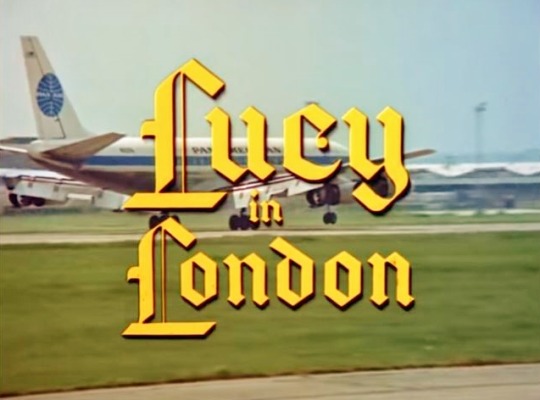
Synopsis
Lucy Carmichael wins a trip to London in a jingle contest. It is a whirlwind, one day tour, with Anthony Newley as her guide. They visit such landmarks as Madame Tussaud's, Carnaby Street, London Bridge, the Palladium Theatre, and an English country manor. On her tour, Lucy gets to sing with the Dave Clark Five, act Shakespeare with Peter Wyngarde, and model mod fashions to a Phil Spector song!
Cast
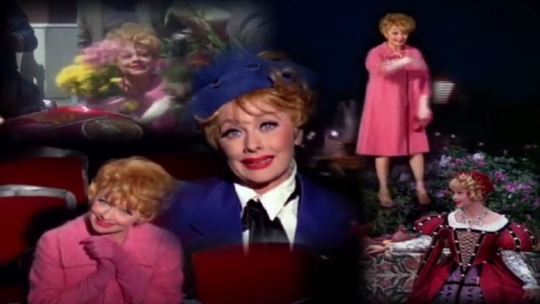
Lucille Ball (Lucy Carmichael) was halfway through her fifth season playing Lucy Carmichael on “The Lucy Show” (1962-1968).
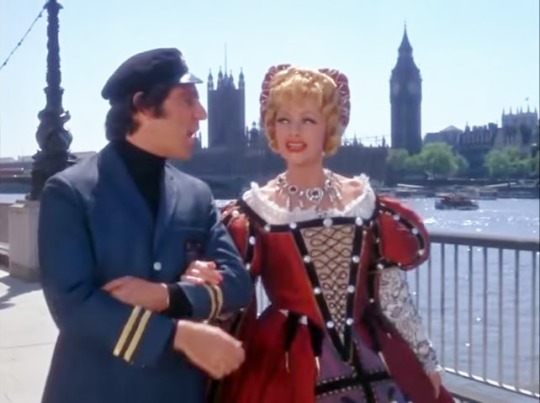
Anthony Newley (Anthony Armstrong Fitz-Faversham) was a London-born actor and singer who was perhaps best known for his collaboration with Leslie Bricusse on the film scores for Doctor Doolittle (1967, in which he also appeared) and Willy Wonka and the Chocolate Factory (1970, in which he also appeared singing the break-out hit “The Candy Man”). In April of 1966, just a month before “Lucy in London” filmed but before the special was aired, he released the film version of Stop the World - I Want To Get Off, a musical which he wrote (again with Bricusse) and starred in as Littlechap in London and New York. In 1965, he starred on Broadway in another musical he co-wrote with Bricusse The Roar of the Greasepaint – The Smell of the Crowd.
Anthony Armstrong Fitz-Faversham is Lucy's tour guide from Royal Luxury Tours Ltd.
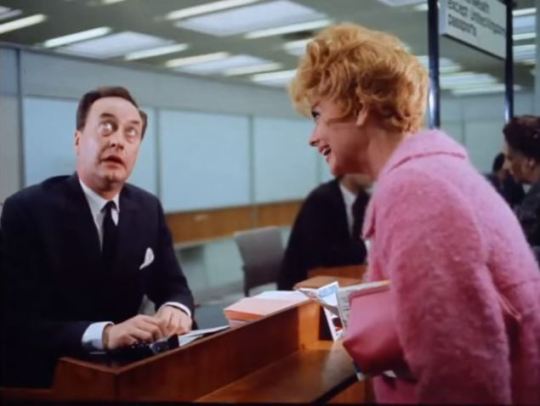
Frank Thornton (Customs Official) will be forever remembered as Captain Peacock, the imperious floor walker on “Are You Being Served?” He was also well known for playing Truly for 13 years on “Last of the Summer Wine.” Thornton died in 2013 at the age of 92.
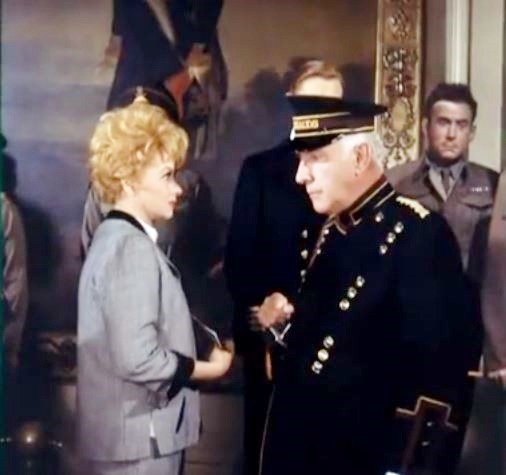
Winifred Hyde White (Hawkins, Madame Tussaud's Guide) was a Gloucestershire-born actor who will probably be best remembered as Colonel Pickering in the 1964 film My Fair Lady. He was twice nominated for Broadway's Tony Award as Best Actor in 1957 for The Reluctant Debutante, and in 1973 for The Jockey Club Stakes.
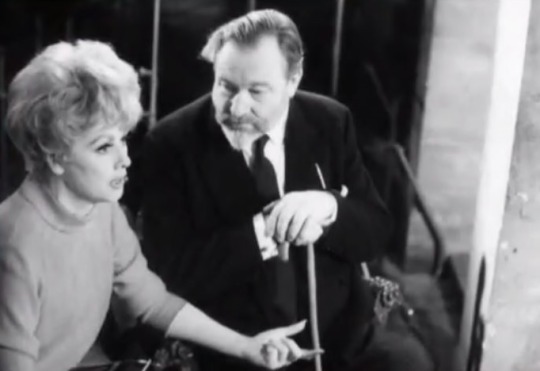
James Robertson Justice (Madame Tussaud's Manager) was known for his bushy beard and booming voice. He is perhaps best remembered as Lord Scrumptious in Chitty Chitty Bang Bang (1963).
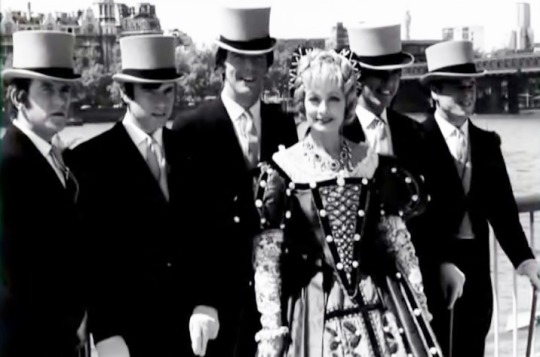
The Dave Clark Five (Themselves) was an English pop rock group made up of Dave Clark, Lenny Davidson, Denis Payton, Mike Smith, and Rick Huxley. Their single "Glad All Over" knocked the Beatles' "I Want to Hold Your Hand" off the top of the UK Singles Chart in January 1964. In 1966 they were regular performers on TV's “Shindig.”
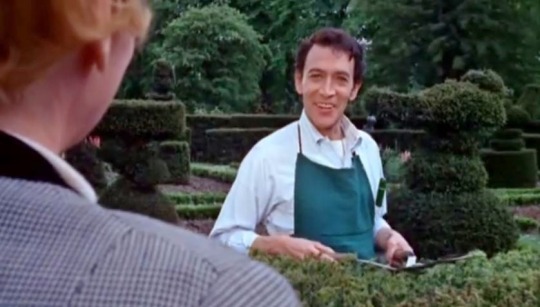
Peter Wyngarde (Himself / Petruchio) was born in France to an English father and French mother. Lucille Ball personally asked Wyngarde to appear in the special having seen him on Broadway in Duel of Angels starring Vivien Leigh in 1960 (while she was appearing in Wildcat). She was said to have been smitten by him, and was determined to find a way for the two of them to act together.
“Lucy may’ve thought I was kidding, but if she wanted to play this straight she would be a marvelous Kate. Her looks are absolutely right as is her vitality. And she’s a good enough actress to be able to do it.” – Las Vegas Sun, October 23, 1966
Edna Morris (Woman at the Shakespeare Festival) was a Lancashire-born actress whose screen acting career began in 1946 at the age of 40.
Dennis Gilmore ('Pops' the Stage Doorman) was a Middlesex-born actor whose screen career spanned from 1953 to 2010.
Joby Blanshard was a Yorkshire-born actor who was seen on stage and screen from 1954 to 1986. He is perhaps most famous for playing Colin Bradley in 32 episodes of the early 1970s 'science-fact' series “Doomwatch.”
Jenny Counsell has just three other screen credits (as per IMDB) the last of which was an uncredited appearance in Carry On Again Doctor (1969).
Bonnie Paul was the step-daughter of Burl Ives.
John Stone was a Welsh character actor and playwright.
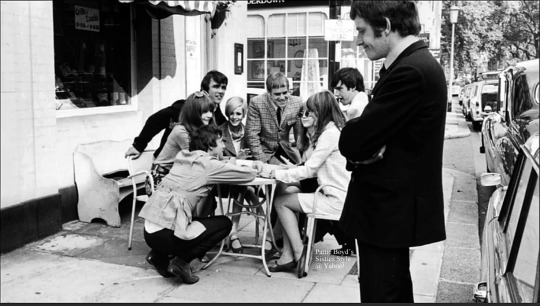
Twiggy was born Lesley Lawson. She became the world's number one model at the time, so named for her slender figure. Twiggy eventually turned to acting on both stage and screen.
Chrissie Shrimpton was a model who (at the time) was dating Mick Jagger. She is the sister of Vogue model Jean Shrimpton.
Jenny Boyd was a fashion model and the sister of Pattie Boyd, who was then married to George Harrison of the Beatles. Boyd left modeling and took up transcendental meditation.
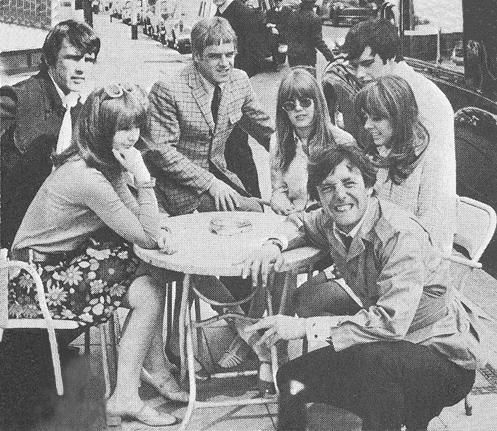
Samantha Juste became known on British television in the mid-1960s as the "disc girl" on the BBC’s “Top of the Pops.” In 1968 she married Micky Dolenz of the Monkees.
Roy Rowan (announcer) was the off-camera announcer for every episode of “I Love Lucy” as well as “The Lucy Show” and “Here’s Lucy.” He was also the voice heard when TV or radio programs were featured on the plot of all three shows. He made a couple of on screen appearances as well.
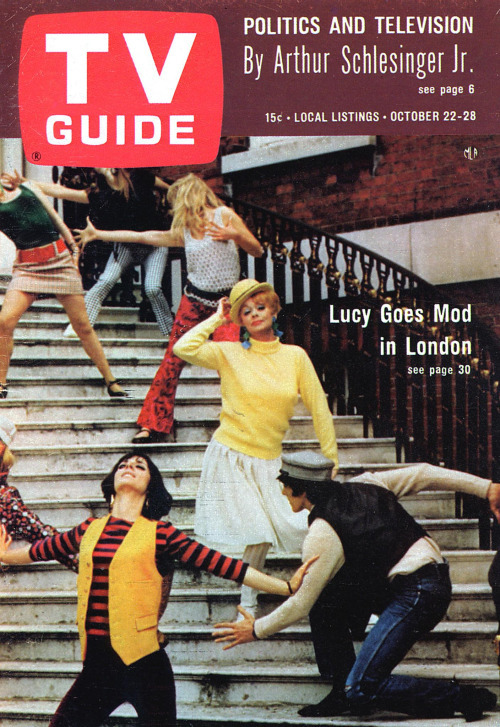
This special was part of Lucille Ball's 1966-67 contract negotiations with CBS. She was supposed to star in three such 'travel' specials, but this is the only one that was ever realized. Ball originally planned to co-star with Mitzi Gaynor as two nuns touring Europe, followed by a French-based production called “Lucy in Paris,” and a Middle Eastern-set comedy called “Lucy in Arabia” or “Lucy in the Desert.”
This CBS special (in color!) first aired on October 24, 1966 in “The Lucy Show” time slot, but because it ran one hour, it pre-empted “The Andy Griffith Show.”
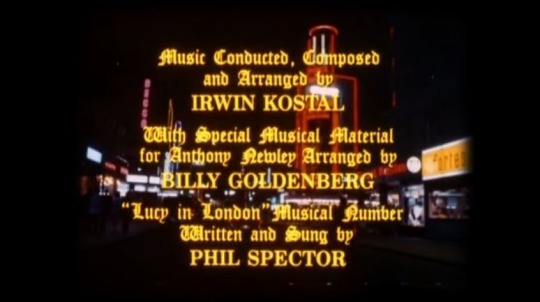
This script was written by Ron Friedman and Pat McCormick. This is Friedman's only time writing for Lucille Ball. Also in 1966, Friedman was nominated for a Primetime Emmy Award for an episode of “The Danny Kaye Show.” McCormick went on to write one episode of “Here's Lucy” in 1969. The special was co-produced and choreographed by David Winters, who had played A-Rab in the 1961 film West Side Story.
The budget for the special was $500,000. It came in under budget.
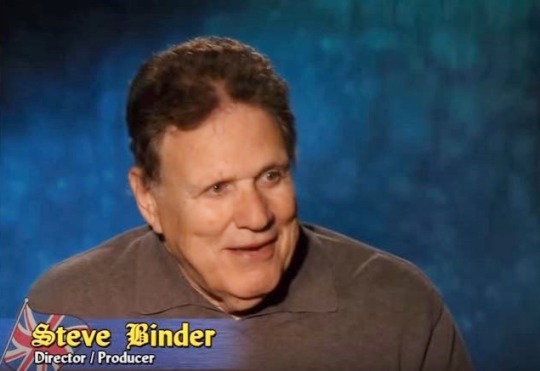
The special was produced and directed by Steve Binder, who specialized in award shows, concerts, and TV spectacles. It was sponsored by the Monsanto Company.
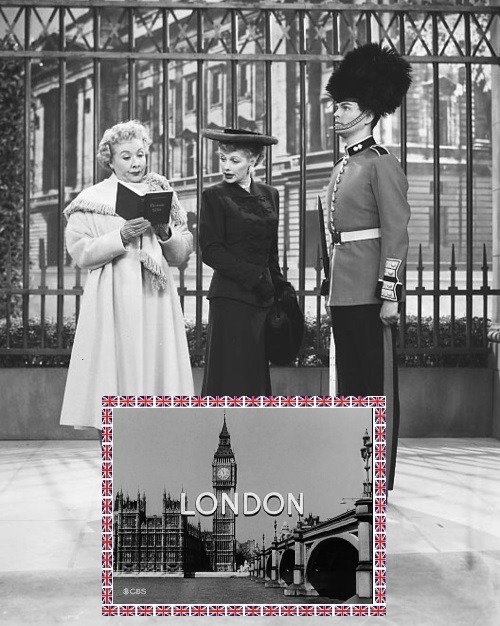
Regular Lucy viewers may remember that Lucy Ricardo went to London during season 5 of “I Love Lucy” although the cast and crew never left Hollywood to film, as they do here. “Lucy in London” was Desilu's first international film project, not counting some second unit footage of Cuba and Mexico gathered for “The Lucy-Desi Comedy Hour.” Like Lucy Ricardo, Lucy Carmichael also visits the changing of the guard at Buckingham Palace and spends some time at an English country manor home located just outside London.
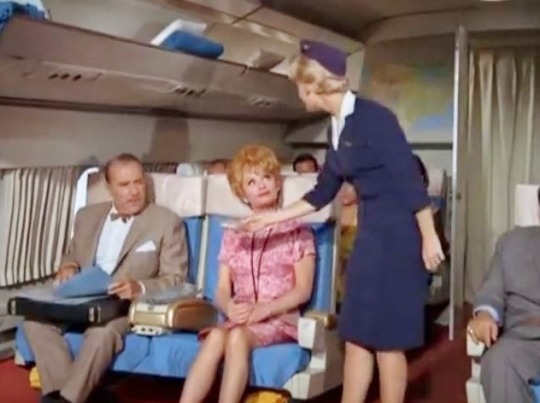
This special was a follow up to “The Lucy Show” episode “Lucy Flies to London” (S5;E6), which was filmed in September 1966, four months after the May location shooting of “Lucy in London.” Lucille Ball later said that May was her favorite month anywhere in the world. “Lucy Flies to London” (S5;E6) was shot completely at Desilu Studios in California, while “Lucy in London” was shot completely on Location in and around London.
The cast was supposed to include actor Laurence Olivier, but he withdrew from the project before filming began. Lord Olivier was mentioned on “I Love Lucy” in “Lucy Meets Orson Welles” (ILL S6;E3).
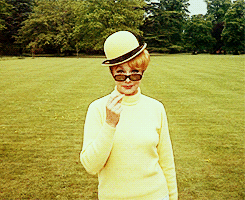
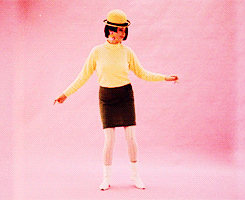


Lucille Ball went through 15 different wigs during the production. Cleo Smith, Ball's cousin and the executive in charge of this production, later recalled that problems arose in photographing the star on the London locations, where the use of heavy stage make-up and filtered lighting that was employed for her studio-based program could not repeated. Ball's biographer Geoffrey Mark Fidelman would later remark that the actress "looked old" throughout the show due to difficulties in establishing flattering lighting for the outdoor sequences.
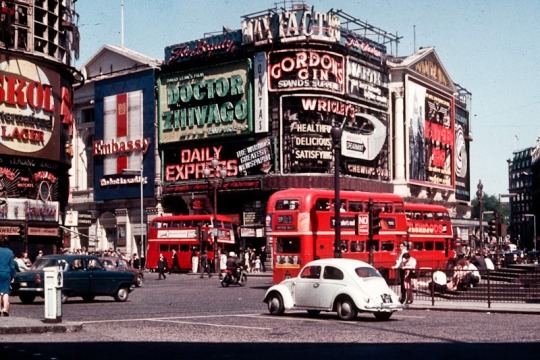
Under the supervision of Cleo Smith, Desilu sent a second unit crew ahead to film scenes with doubles of Lucille Ball and Anthony Newley as they traveled through London and environs on their motorcycle and sidecar.
The special is divided up into acts, like a play, with titles on the screen – in Old English font, naturally!
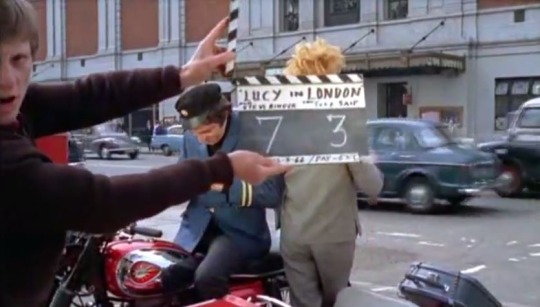
The opening sequence of Lucy stepping off the Pan Am jet used only still photos shot by Life Magazine's Bob Willoughby. His photographs were used in a montage format until Lucy meets her tour guide when traditional film storytelling begins. Director Steve Binder says that this was a creative decision due to the notoriety and artistry of Willoughby, not a cost-saving measure. The sequence also reflects a typical tourist like Lucy's snapshots of their trip, an idea reinforced by the fact that Lucy wears a camera around her neck for much of her time in London.
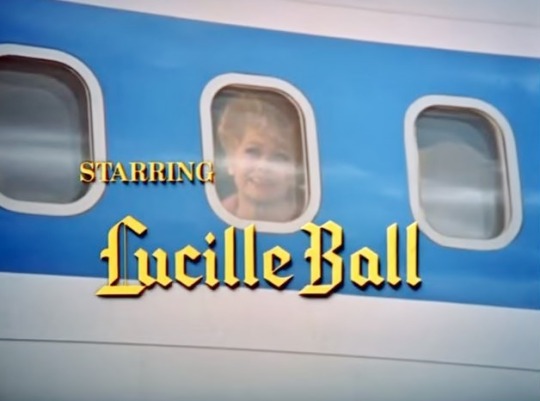
The sequence involving Lucy de-planing from the Pan Am clipper jet had to be accomplished in between flights already on the tarmac at Heathrow. No planes were available to be grounded for a day of shooting. Coincidentally (or perhaps not) Pan Am (which is no longer in existence) was also the carrier when Lucy Ricardo flew home from Europe and from Miami to Havana on “I Love Lucy.”
To ensure that Heathrow and other London locations were accessible to the film crew, a former Buckingham Palace official with the proper 'connections' was engaged by Desilu. It is unclear whether anyone was 'bribed' to open doors, but some locations did charge a user fee, which Desilu gladly paid. When Desilu asked about police protection for Lucille Ball during their shoot near London Bridge, Scotland Yard replied that they didn't do that for anyone – not even the Queen! They did, however, guarantee that if the crew did not block traffic and cause any pedestrian problems, they would be sure all went well.
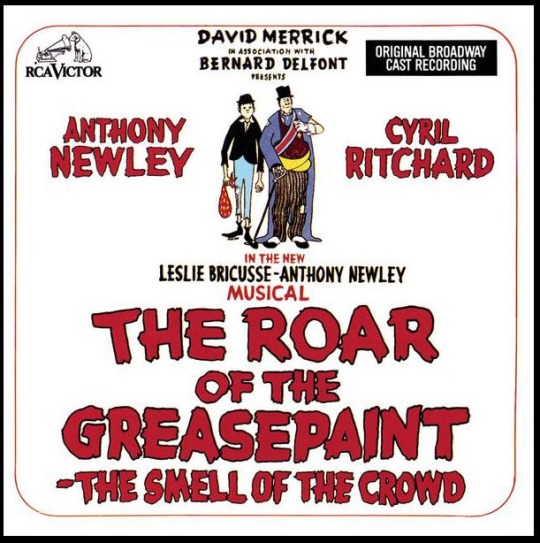
Newley sings “On a Wonderful Day Like Today” as he zooms off on his motorcycle with Lucy in his 'top drawer' sidecar. A chorus of schoolgirls on bicycles join in singing “The Beautiful Land.” Newley then sings a bit of “Sweet Beginning” as they drive through Piccadilly Circus. These songs are all from the musical The Roar of the Greasepaint – The Smell of the Crowd, which Newley co-wrote with Leslie Bricusse and starred in on Broadway in 1965. This is the show that gave Cleo Smith the idea to cast Newley, who only had a two week opening in his Doctor Dolittle shooting schedule to film the special with Lucy.
On the banks of the Thames, Newley quickly sings a bar of “What Kind of Fool Am I?” a song he wrote and performed in Stop the World – I Want To Get Off. Speaking of banks, Lucy says she works in a bank back home where “her boss” makes her report at 8am. Interestingly, not much of Lucy Carmichael's home life is discussed other than this.
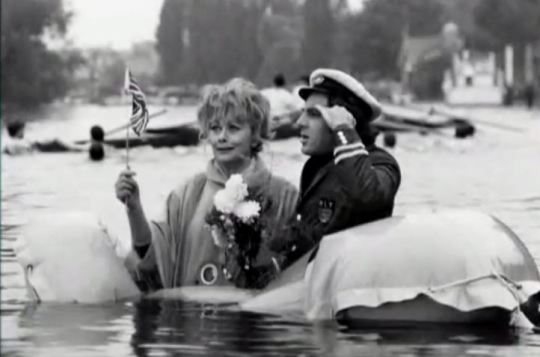
The stunt where Lucy and Anthony Newley sink into the River Thames was supposed to be shot in another location due to the fact that the Thames was reported to be polluted. At the last moment, Lucy decided it was funnier to actually do the stunt on location, despite the risks involved. As she did in “Lucy at Marineland” (S4;E1) and various other times in her career, Lucy did the stunt herself, not employing a stunt person or effects.
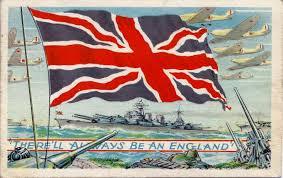
As Lucy and Tony's punctured raft is sinking in the Thames, Newley salutes the Union Jack and sings a chorus of of “There'll Always Be an England,” an English patriotic song written in 1939 by Ross Parker and Hughie Charles, and famously sung by Vera Lynn. In “Lucy Flies to London” (S5;E6), the episode of “The Lucy Show” that preceded this special, Mr. Mooney quotes the same song, dreading his secretary's frenetic presence in England's capital city.
youtube
Bronx-born singer / songwriter Phil Spector was commissioned to write and perform the title song “Lucy in London,” to which is set a montage of Lucy in and around London wearing mod fashions. A demo single of the song was recorded by Spector, but never released. The song comes about 15 minutes into the special and mentions The Dave Clark Five, who have actually not performed yet on screen. The montage features Lucy in mod fashions of the time and has cameos by top fashion models like Twiggy. The musical montage ends Act I.
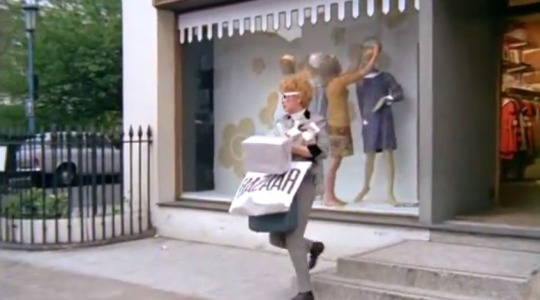
Several scenes were cut for time. The first was Lucy stepping out of Mary Quant's London boutique Bazaar with packages and mod sunglasses. She gets into Newley's sidecar and the two drive off.
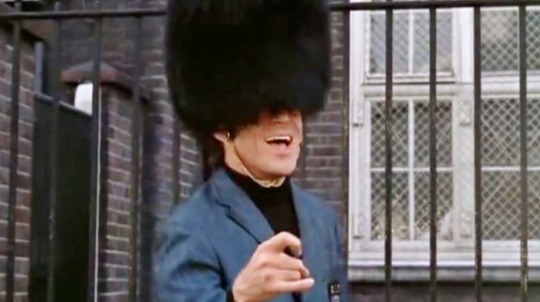
The second involved Newley donning a tall black fur hat and demonstrating to Lucy how silly the changing of the guard at Buckingham Palace is. Both scenes turn up on the “Lucy Show” season 5 DVD documentary about the special.
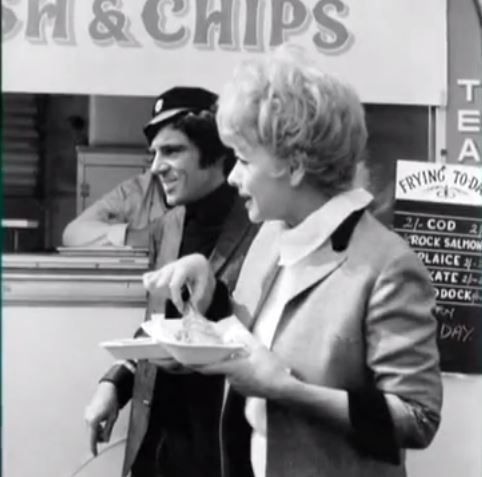
Another scene was filmed where Newley takes Lucy for a lunch of fish and chips, riding on a bicycle built for two. Only still photos remain of the scene which had Lucy trying to talk like a Cockney to a genuine London-born chip stall owner.
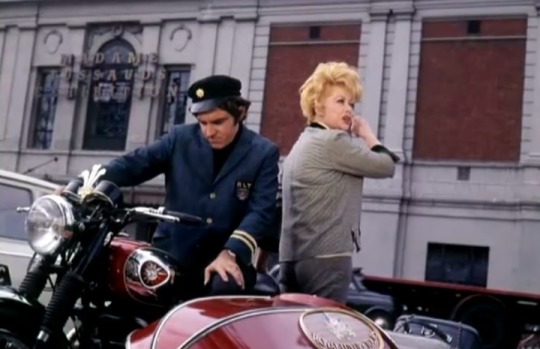
Madame Tussaud's Wax Museum was (and still is) one of London's busiest and most popular tourist attractions. The production was only allowed to film inside once the museum was closed and the last tourist had exited the building. In the Museum sequence, a wandering Lucy gets separated from her tour guide (Winifred Hyde White) and must be led to the Chamber of Horrors by the manager (James Robertson Justice) to catch up with her group. The scene called for a frightened Lucy to hit him over the head with a bottle. The production supplied candy glass prop bottles for the stunt, but somehow Lucy managed to pick up an actual glass bottle and Justice had to be hospitalized for stitches. Presently, Madame Tussaud's Wax Museums in New York City and Las Vegas feature figures of Lucille Ball as Lucy Ricardo.
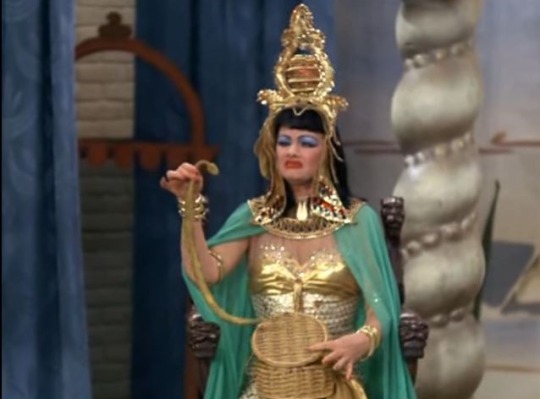
Before they go inside the waxworks, Newley teases Lucy that inside she'll find Cleopatra and her Mark Antony. Lucy played Cleopatra onstage back in Danfield with Viv as her Mark Antony. Before going in Newley says “TTFN.” When Lucy asks what that means, he replies “Ta ta for now.” TTFN was a favorite expression of Winnie the Pooh's pal Tigger. The voice of Tigger, Paul Winchell, guest starred on “The Lucy Show” just prior to this special. He once claimed that it was his idea to have Tigger say TTFN.
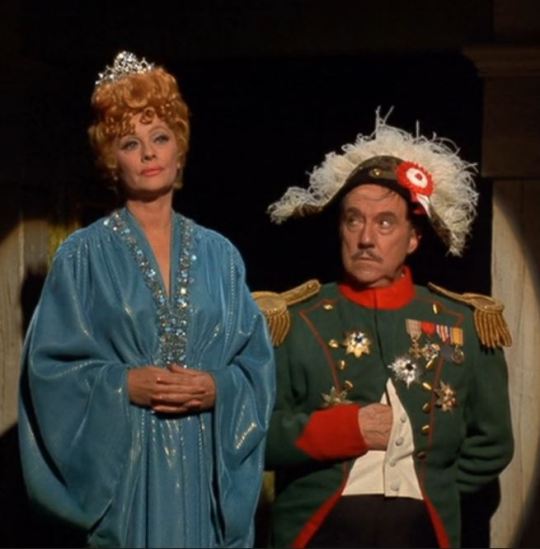
Inside the museum, Lucy tweaks the nose of Prince Philips' wax 'figger'. Prince Philip was mentioned recently in “Lucy with George Burns” (S5;E1) and several times on “I Love Lucy.” She also sees waxworks of Napoleon and Josephine. On an episode of “Here's Lucy,” Lucy Carter and Harry (Gale Gordon) play Napoleon and Josephine during a séance.
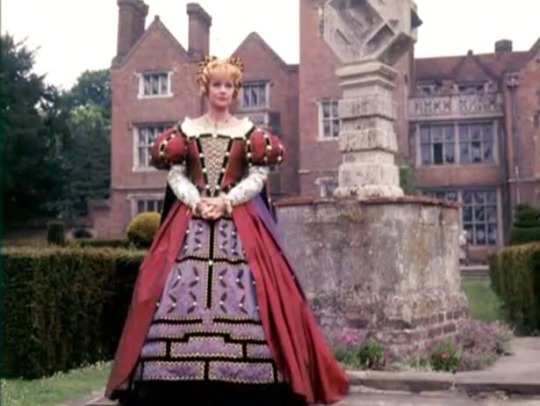
Great Fosters (not Grace Fosters!) is an English country manor from the Tudor period located in Egham, Surry, just outside of London. There is evidence that the de Imworth (later Fosters) family lived there as early as 1224. Now under the ownership of the Sutcliffe family, the historic building became a hotel in 1930, as it remains today, hosting tourists, wedding parties, and those looking for fine dining. When Lucy arrives they are hosting a Shakespeare Festival at their theatre in the gardens. Lucy brags to one of the actors (Peter Wyngarde) that she did Shakespeare's Much Ado About Nothing in high school. Lucy and Wyngarde rehearse a scene from The Taming of the Shrew with Lucy as Kate (her only line is “Never!”) and Wyngarde as Petruchio.
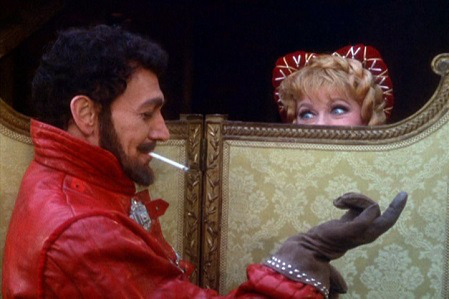
After Lucy flees taming by 'Petruchio' and runs from Great Fosters, Anthony Newley jokingly does an imitation of Stan Laurel saying “Well, Lucy, that's another fine mess you've gotten us into.”
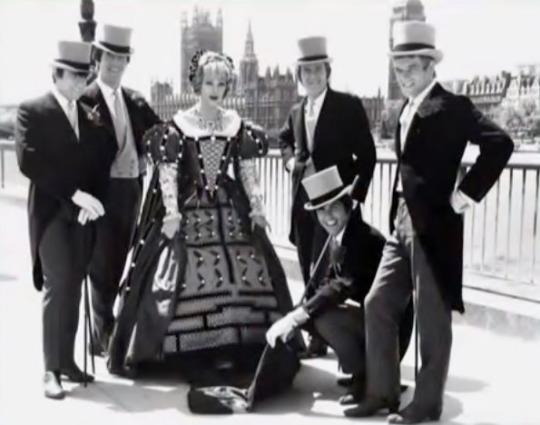
In front of Lucy, Newley, and The Dave Clark Five (in morning suits and top hats) perform a medley of “London Bridge is Falling Down” and “Pop Goes the Weasel.” It is interesting to note that the London Bridge seen in the background is the old London Bridge (1831-1967). A year after filming, this bridge was dismantled and sold while a new version (that still stands today) was built to replace it. The old London Bridge was reassembled in Lake Havasu City, Arizona, opening in 1971, where it remains the number one tourist attraction.
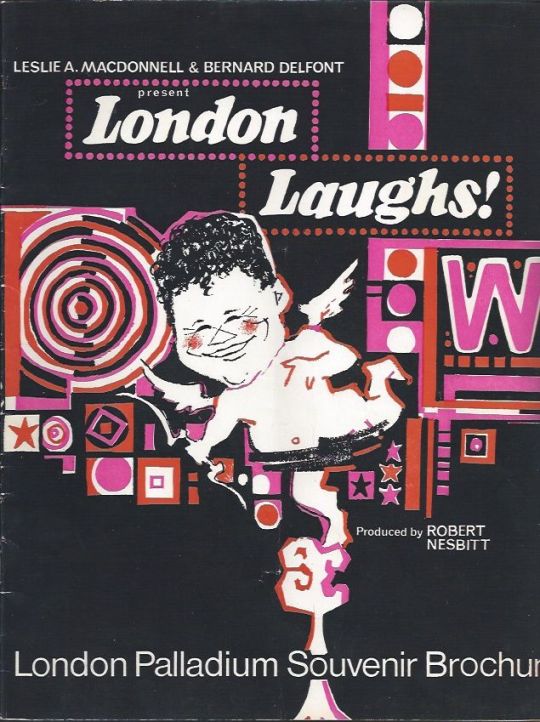
In Act IV, pulling up to the London Palladium, Lucy and Tony see the marquee for a show called London Laughs starring Harry Secombe, Jimmy Tarbuck, Thora Hird, Freddie Frinton, and Russ Conway. Instead, however, Newley takes Lucy to The Scala Theatre on Charlotte Street, off Tottenham Court Road. The theatre opened in 1903 seating 1,139 and boasts a large stage. Three years after “Lucy in London” filmed there, it was destroyed by fire and demolished. Today the site is the location of an apartment block.
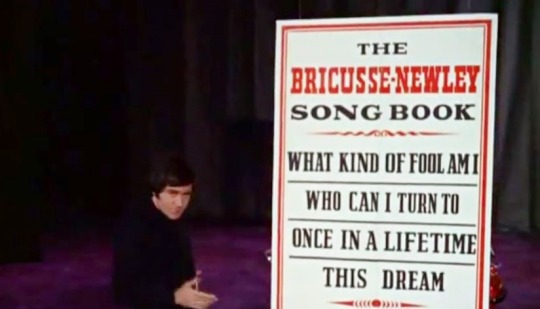
On the Scala stage, the special takes a slightly surreal turn with Newley suddenly presenting a full scale musical one-man show with lights, scenery, costume changes, and orchestra. He first sings “Fine Day in London” then “I'm Gonna Build a Mountain” (from Roar of the Greasepaint). He follows with “Once in a Lifetime” from Stop the World and “Nothing Can Stop Me Now,” also from Greasepaint.
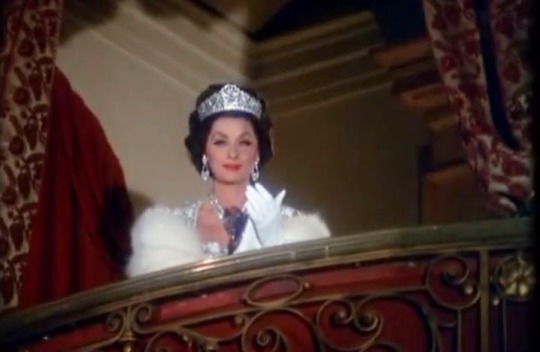
During “Look at That Face” (Greasepaint) he sings directly to Lucy, the Queen of Comedy, “the face that the world adores” and she becomes the Queen of England sitting in the Scala Theatre’s royal box. He ends the medley with “This Dream” (Greasepaint) and Lucy becomes the (male) orchestra conductor. After Newley leaves the stage, Lucy reappears as an Eliza Doolittle-type flower girl sitting in the front row of the balcony eating a piece of fruit.
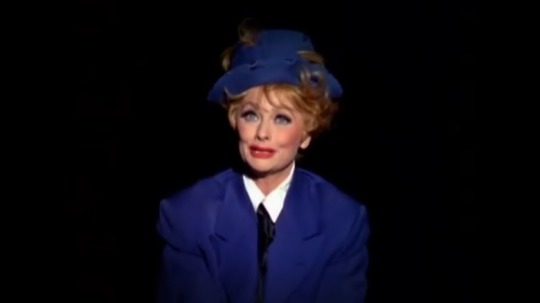
The special then takes on an even more dreamlike quality with Lucy on stage doing a pantomime in a spotlight. It looks like Lucille Ball is wearing the same over-sized suit that she wore as the Professor in the “I Love Lucy” pilot and “The Audition” (ILL S1;E6). The very end of the special, still on the Scala stage, singing about her “One Day in London” Ball seems to drop the Lucy Carmichael character and speak directly from the heart as she addresses the camera. It is some of the most moving acting Ball has done on television thus far.

Although nominated as Best Actress in a Comedy for “The Lucy Show,” Lucille Ball was not able to attend the Emmy Awards Ceremony on May 22, 1966 as she was filming “Lucy in London.” In any case, she lost to Mary Tyler Moore in “The Dick Van Dyke Show.”
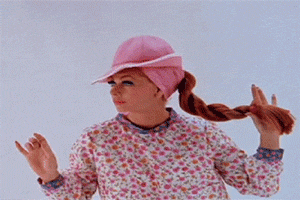
Viewership was high for the special (finishing as the most-watched telecast of the week) but critical responses were very poor, with Variety complaining: "What had promised to be one of the season's major specials turned out to be a major disappointment." Perhaps because of this, Ball opted not to pursue the creation of the remaining two specials in her contract. If the critics did not approve of her stepping outside of what she was known for, she would give them more of what they expected.
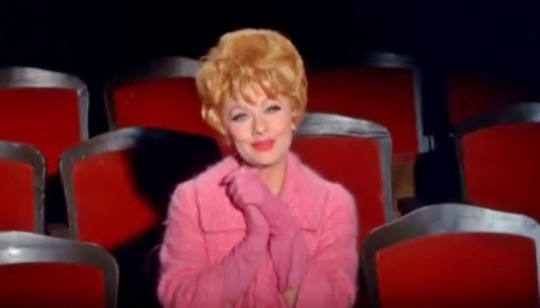
“Lucy in London” was aired just once – on October 24, 1966 - and was not seen again until the DVD release of the official fifth season of “The Lucy Show” as bonus material. As with “The 'I Love Lucy' Christmas Special,” “Lucy in London” was not included in “The Lucy Show” syndication package and is not counted in the official episode tally.
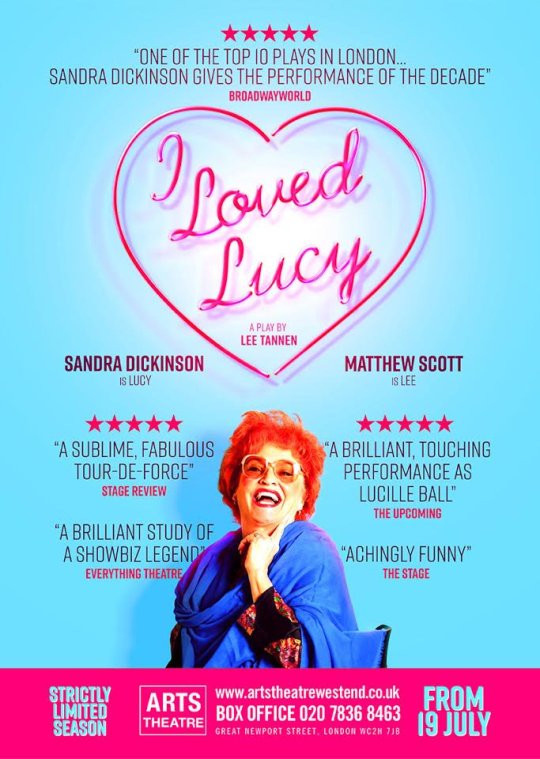
Although this special marked the only time Lucille Ball was seen on a London stage, after more than 50 years Lucy will once again be in London (sort of) when Lee Tannen's autobiographical play I Loved Lucy returns to London’s Arts Theatre during the summer of 2017. Sandra Dickinson plays Lucy and New Jersey's own Matthew Scott is Lee.

“Lucy in London” rates 4 Paper Hearts out of 5
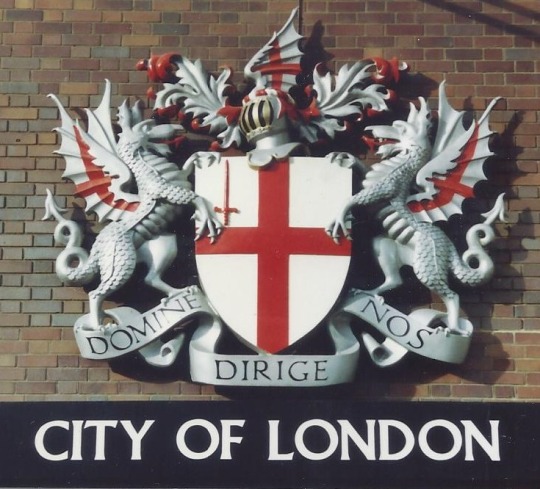
#Lucy in London#Lucille Ball#London#1966#CBS#TV#Anthony Newley#Peter Wyngarde#Winifred Hyde White#Frank Thornton#Heathrow Airport#The Taming of the Shrew#Great Fosters#Madame Tussaud's Wax Museum#Cleo Smith#Piccadilly Circus#River Thames#motorcyle#sidecar#Twiggy#Dave Clark Five#Edna Morris#Denis Gilmore#Mary Quant's Bazzar#Chrissie Shrimpton#Roy Rowan#Jenny Counsell#Bonnie Paul#John Stone#Jenny Boyd
10 notes
·
View notes
Text
So Boys and Girls, Today we’ll learn about cheap flights to Venice, how bad things can sometimes happen in more than threes, how beautiful this city really is and how to set off the security alarms in an airport.
The Pilgrim has been busy on T’internet and has a proposal.
“Fancy a run to Venice?”, she asks. “Do dickie birds fly and fish swim?”, was my reply.
It’s fifty quid apiece for the airfares and a little over that per-night for an AirBnB apartment in the heart of the town about five minutes from Rialto Bridge.
In the intervening time there has been a flurry of activity around the Passport Office in Durham which turned into an away-day holiday on the train and included a wonderful walk around the city followed by a gentle meander around the Cathedral. All very pleasant and I have to say the people at the Passport Office were charm and efficiency itself. My high tech passport had got a poorly chip and forgotten the colour of my eyes or shape of my retina or some such thing. You might say no big deal but it did result in me getting ‘special treatment’ on each trip away this year whilst the Pilgrim and the other travellers, presumably including terrorists, got to be fast tracked through the automatic barriers. I never got the thrill of the rubber gloves but the threat was always there!
Anyway, it’s three thirty in the morning and I’m having a coffee, the Pilgrim joins me at about quarter to four and by four o’clock we’re carefully removing the nearside mirror from the car by virtue of a stone gatepost; no matter, we’re going on holiday.
We’re not out of town yet and I realise I’ve left three hundred euros but decide not to return as I can use them when I’m in Nice in another month.
We’re on our way to Leeds/Bradford where it is chaotic. Staff are, as alway, cheerful and respectful but the airport itself seems to have outgrown its capacity. I know that in another two or three hours we’ll be in the sunshine but the morning hasn’t started well.
We eventually board the ‘plane and then begin counts and re-counts followed by threats to remove the luggage of some unpronounceable individual who, it would seem, has dematerialised during the short trip between check-in and the flight. After several more re-counts and a walk down the aisle with a clip board the threat is carried out. It’s really is stacking up to be ‘one of those days’!
So, we’re a little late but at least we’re off, short of the aeroplane falling out of the sky we’ll be there in two hours; it doesn’t and we are.
Carefree now, we board a bus that takes us about 50 metres to the door to the terminal whilst those that haven’t boarded the bus arrive just a little before us having walked – but it’s Italy and that’s OK.
We’re just about to go through passport control and I’m looking forward to testing my new chip but this is all manual so It’ll remain untested until our return. Then there’s an ‘oh shit’ moment as the Pilgrim realises she’s left her bag in the care of Ryanair on the ‘plane. “Well, pluck me with a feather”, says she (Well it was something like that) and makes a return to said ‘plane with considerable haste. I’m thinking that the morning started poor and has gone steadily gone down hill when the Pilgrim’s good intentions turn to bad as she sets off the airport security alarms whilst making her illegal exit to the tarmac. After a brief explanation and a thorough check of her passport by the officials who clearly believe her to be a threat to national security we’re reunited at the bag drop where both my hold baggage and her cabin back have made a miraculous appearance.
We exit the secure area into the arrivals hall and start the process of hunt the email that proves we have a ticket for the transfer from Treviso Airport to Venice itself and it seems to have done a runner. After several searches of the ‘phone and some sage advice from the help desk where the mere mention of Ryanair and a transfer into town brings a rye smile and a toss of the head in a John Mcenroe “You cannot be serious” kind of way. She points us to the ticket office at the other end of the hall where I’d already had some advice and thankfully they are well on the ball and hand a list of names to the Pilgrim to identify herself. That done and tickets exchanged we’re on the bus. All’s well that ends well; however, we still haven’t connected with Sandra who owns the apartment that we ‘might’ be staying in for the next four days. I’ve seen the trail of texts and emails on the Pilgrim’s ‘phone where she’s made every effort to respond both timely and in appropriate detail; however, Sandra’s replies have been inconsistent and efforts to ring her ‘phone have been unsuccessful. It’s quite important that we meet as she’ll be showing us where it is, letting us in and handing over the key, well that’s the plan.
Hopes are raised as the Pilgrim receives a call from Sandra, a lovely Welsh lady from Swansea and our contact for the apartment; no, this is a huge coincidence, the name is correct, we are wanting to talk to Sandra but not about solar panels, I think I’d have told her to piss off but the Pilgrim is made of sterner stuff and is rather more polite.
Back to the challenge in hand, we’d really, really like to be able to pick up those keys today. There’s some light hearted conversation about the scenery and a comment about what nice weather we’re having, then, about half an hour in and some WhatsApp activity there are smiles as contact is made. Sandra prefers the use of WhatsApp but had clearly forgotten to mention it.
So, we exit the coach at the bus stop, buy a hat, nice paper straw one made in China, buy a couple of three day tickets for all public transport a snip at 40 euros each, we activate them ready for our first canal excursion with the intention of meeting Sandra near the Travalex, she’ll be sporting a red rose and wearing a green scarf (OK the last part may include embellishment but the Travelex bit is true).
The journey along the canal is spectacular and the sky is unbroken sunshine, what’s not to like.
We disembark at Rialto and, whilst there’s no soft focus shot or slow motion approach we’re still quite glad that Sandra is really real and not a digital assistant living in a virtual world. We do the continental kissing bit, elaborate and on both cheeks and then she welcomes us to Venice.
The apartment is situated no more than 10 minutes from anything but only 5 minutes from Rialto Bridge so it’s central with a big ‘C’. It can be found, with a bit of patience, along a labyrinth of very narrow streets and if you have Google Maps on your ‘phone is dead easy to find, without it you need a Geographer!
Sandra is very patient and spends over an hour advising us of restaurants, cafes, sights to see and towers to climb to see magnificent views – and magnificent views there are aplenty!
After Sandra’s exhaustive and exhausting introduction we make our way back to Rialto Bridge and board the vaporetto to… well it could have been anywhere because you just can’t make a bad choice. We end up at Piazza San Marco where the Campanile di San Marco dominates the square and you can pay 8 euros for a coffee then be chased along the street for another 15 euros for the entertainment that just happens to be playing adjacent to where you’re sitting. We’d been warned (thanks Anne) so we make every effort to enjoy the square then make our way to a cafe with rather less eye watering intent but equally good coffee.
The return involves snaking our way along some of the narrowest and cleanest passageways that oozed safety. In fact I’ve never been to a city that’s felt this safe and hope that it’s not built on a false premise.
At ten to nine the sun goes down and at nine it’s dark and we pass a kind of courtyard that’s lit by coloured lights and there is one table ideally placed at the outer edge of the clutter that’s been recently vacated. It whispers an invitation that we accept with gratitude and the waiter immediately responds with a cloth to wipe it down and take our drinks order.
This is such a good place, there is no thoroughfare of people wandering past and knocking the chairs and tables. The lights are subdued but not dingy. The waiter is attentive and knowledgeable and the food is divine. An hour and half later we’re well fed, a little mellow and ready for bed and here’s the bonus, we’re only five minutes from our temporary Home.
How to describe Venice? Well. The Pilgrim summed it up where quoting someone else’s quote; ‘Venice cannot be compared with anywhere else but Venice. I couldn’t know that now but I will do when I leave.
We walked and floated on our second day around the City taking in vaporettos, bridges, churches and more canals. During the day there are crowds, and these are challenging on the vaporettos but it’s no real issue as we’re only on them for one or two stops and the staff are super efficient shouting commands first in Italian then in English. Everywhere we go we’re looked after by smiling locals who live either here on the main island or make a short commute from one of the islands.
There is evidence of the greatness of Venice everywhere. It was founded in the 5th century and became a dominant region for trade linking Europe, Africa and because of the sea links the far east and Asia. It’s had a number of titles but all of them include the word Venice. My favourite that is still appropriate today is Serenìsima Repùblica Vèneta which means the Serene Republic Of Venice. There is little traffic noise because there are no roads. There is some minor engine noise from the various boats but not intrusive. The noise of people talking to each other is clear and occasionally there’ll be locals shouting to each other in Italian as they toss merchandise, sometimes in huge and unfeasibly heavy packs off working boats from canal to shore and always with a twinkle in the eye and a captivating smile often accompanied with a baritone laugh.
The streets, paths and passageways are narrow and always have a bridge as they criss cross the canals. The labyrinth is intimidating to start with then, as I begin to appreciate how small the city is, it becomes irrelevant. I’m also accompanied by own Geographer/Map Reader with an unerring sense of direction in the form of the Pilgrim who seems to have memorised areas of the city and the means of getting between them.
Going back to the Serenìsima Repùblica Vèneta, there was an unofficial referendum in 2014. It was claimed there were 2.34 million votes cast and the result was that the Serene Republic of Venice should be re-established and it would accede to the EU, adopt the Euro and join NATO. It was all non-binding of course but it is an indicator of the pride of the people in their region. Their sole purpose in life is to show us their city and make it an amazing experience into the bargain, well that’s my take on it anyway!
It did enjoy a period of about a thousand years as a sovereign state from the ninth century during which time the focus was almost exclusively trade although they did indulge in a bit of fighting along the coast with a navy that was not to be ‘messed with’.
There is evidence of great men in the form of statues to saints and sinner alike. Vivaldi is prominent together with Marco Polo and there are exhibitions and more statues in fabulous open piazzas usually dominated by a church. Sadly, there is very little in terms of great women and the only female statues that I saw were saints or references to Giocometti’s exhibition of his Women of Venice statuettes which, apparently, travelled the world including the Tate in Britain.
It is a city of contradictions with occasional signs that politely ask you not to picnic on the steps of a bridge; however, there are no public seats in any of the piazzas so they’re ignored anyway.
The bars and restaurant/cafes have seating areas which are not particularly jealously guarded and I do sit at one or two of them whilst checking the map with no intrusion by waiter or owner such is the welcome.
On the third day we go by vaporetto to Lido which is a long island to the south east of the main conurbation of Venice. The beach is busy but not crushed like some of the popular Spanish ones and the Adriatic is warm so we take the opportunity to swim and follow that with drying off under the warm sun.
It reminds me of childhood days in Redcar when we’d be taken there once per year usually as a church outing in a ‘luxury’ coach with seats that were rough on the skin of boys and girls in short trousers and equally short dresses. As I doze I can remember the first shout of “I can see the sea” as we reach the top of the bank at Yearby and the excitement of nearly being there as the coach pulled into a parking area. These ‘coach parks’ were really an area of waste ground and there were so many coaches that they were parked extremely close to each other so that it was necessary to agree a time for our return which was not negotiable.
There then followed a day of sandcastles carefully built with small, brightly painted, tin buckets and matching spades. Then we’d attempt to fill the moats with sea water that disappeared at the same rate as you poured it from the bucket. The bucket, of course, was now rendered useless as a receptacle for building more sandcastles because the wet inside would make the sand stick so you couldn’t get the smooth sides necessary for the turrets. We found a way around that though by wetting the sand first, not too wet though or they would collapse; the mix had to be just right.
There’d be ice-cream as a treat and a break in the middle of the day to consume the pre-prepared sandwiches wrapped in grease proof paper and usually with the added thrill of additional sand that grated in your teeth and this, sometimes, was supplemented by chip show chips and I still enjoy a sandwich of any sort with a few chips on the side of the plate as a treat.
All of this was interspersed with occasional dips in the icy North Sea followed by violent shivering as the water evaporated from our skin and ‘me Mam’ would vigorously rub us down with a towel that removed the water droplets and warmed us up but left a residue of sand so that whatever tan we’d acquired through the day would be sandblasted off by the afternoon rub.
Twenty minutes before the pre-determined time we’d all return to the ‘coach park’ along with half the mother & child population of Yorkshire to choke on the exhaust fumes of the now started coaches and be transported back home with tales to tell in the playground the following week. Oh, and, I don’t remember a day that wasn’t sunny but I do remember my sisters listening and singing Buddy Holly’s “Peggy Sue”.
I drift back to the sand here at the Venice Lido and enjoy the same sandy sandwiches only this time it’s a baguette and some very pleasant cherry tomatoes. The Pilgrim has prepared one with some olive oil, bay leaves and tomatoes so that it infuses into a bit of soft mass but the result is a very acceptable sandwich on the beach. I have separate components as I’m not keen on the thought of the soggy infusion but on the day, it does smell very nice.
We hire a four wheeled bike and I’m put in charge of the steering wheel but, in less than a mile, we’re returning to the owner with a request for a couple of two wheel bikes. There are no gears on the four wheeler and we both agree it is too slow.
Now equipped with a two rather more appropriate machines we tackle a circular route that more or less follows the coast. If you do come to Venice, I’d urge you to do this and just take your time. Whilst the Lido is not as picturesque as Venice proper, our afternoon is a delight and coupled with the spell on the beach, is a great way to soak up some sun.
We make a return to Fondemente Nove on the main Venice island passing the Hospital on route then make our way adjacent to the Ospedale Ss Giovani e Paolo (they don’t make it easy) and into the wonderful Basilica piazza of the same name. Time for coffee and a rest then off to gently walk the relatively short distance back to the apartment.
We’re lucky with evening meals. All are exceptional and by utilising the “Venezia Typicale” part of the menu we get beautiful local treats. Our first evening meal was in a small square, our next involved two, or it could have been three cicchetti (we did have a drink at each one – OK maybe it was four) which is the Venetian equivalent of tapas and they are wonderful.
The other two nights are spent with best bib and tucker on the banks of the Grande Canal. The prices are somewhat challenging but the ambience can not be bought and the Pilgrim is looking stunning so it has to be done. We eat as the sun goes down and the tide comes in. The canal laps on to the piazza as the vaparettos and other boats go by but the tiny waves only encroach by a couple of yards and we’re another twenty yards away. There are youngsters all dressed up and some of them wearing wreathes around their necks to celebrate graduation. They’ve had a few drinks but are not intrusive and they seem to want to do is sing. A police boat goes by with blue lights flashing but the picture is surreal as it doesn’t seem to be in any hurry.
Sobriety is abandoned in my case when I indulge in a bit of wine tasting that results in an empty bottle, I’m guessing the two or three Moretti as warm up may have contributed too. It did result in some significant snoring; however, why anyone would want to stay up and listen to me snore is a mystery to me.
Our final morning involves a 6am start and a bit of a walk which is pleasant in the sunshine. We do underestimate the time to reach the coach park where the airport shuttle bus operates and we arrive two minutes after seven. The bus is timetabled to leave at seven so things get a little tense as I wave my hat at the driver whilst the Pilgrim lies on the road in front of his wheels. Needless to say, we get on and although the rest of the occupants are not best pleased, we are – albeit, in my case, somewhat sweaty.
If you use the Treviso Venice airport there is a nice cafe just over the road that the Pilgrim points out. She’s used it before and it is far more ‘local’ and less frenetic than the ones in the departure lounge.
This is a glorious city every bit as wonderful as it’s been described, I’d go back in a heart beat and have already begun the planning.
Enjoy the snaps…G..x
With the Pilgrim Cecilia Kennedy
PS: if you can, view the snaps at full size and try not to get “Veniced out” as there are rather a lot of them.
As always please feel free to share.
Commercial use requires written permission and all is copyright.
Venice 2017 So Boys and Girls, Today we'll learn about cheap flights to Venice, how bad things can sometimes happen in more than threes, how beautiful this city really is and how to set off the security alarms in an airport.
#Landscapes#Photographs#Photos#Piazza San Marco#Pictures#Saint Mark&039;s Basilica#Venice#Walking#Walks
1 note
·
View note
Text
Colby, South Carolina
Concept: a slice-of-life style TV show set in the small beach town of Colby, South Carolina. Emily is the main protagonist. She moves to the town at the start of the show and starts work in a small bookshop run by self-described “pagan witch” Hazel, who is in her 60s.
Her coworker is a man named Meredith (“Yes, my name really is Meredith. It’s Welsh”). He can be extremely enigmatic when he chooses to be, but he and Emily grow close over the course of the show. Meredith owns a boat and is a very capable sailor. He offers Emily to take her out for a weekend, sometimes with more innuendo and sometimes with less.
The two of them grow into a very close friendship, but they also experience a strong mutual attraction. Meredith openly admits that he cares very deeply for her romantically, but also admits that he cares for their friendship and doesn’t want to pressure her into something that will ruin their current relationship. Emily, for her part, agrees that getting involved romantically isn’t something that they can go back from, but privately admits to Hazel that she’s scared that if she ever did get involved with Meredith that it would end with the both of them scarred.
As the series progresses strange things happen throughout the town that get more and more noticeable (and dangerous) as time goes by. At first, these things are hardly noticeable: a statue that changes position every episode or so, a tree that appears behind Emily in every shot but is never remarked upon, a man in the background with two shadows. Then things get more obvious. Glowing multicolored lights appear out at sea at night. A miniature whirlwind spontaneously appears in the bookshop and knocks over all of the shelves. Birds flock in droves over the houses.
Emily and most of the rest of the town has no idea what it all means or what’s causing it. At first, she tries to rationalize it all away, but eventually she accepts that something very strange is going on. Meredith and Hazel, on the other hand, are equally as worried but keep sharing knowing glances and refusing to tell Emily what they mean. Hazel acts both extremely protective and angry with Meredith in turns, and Meredith seems to be simply miserable.
Finally, just before the finale, Meredith tells Emily to leave Colby. He claims that it’s too dangerous and that she’s going to get hurt, but when she asks him to come with her he refuses without giving any explanation. Hurt, she returns home and debates whether or not to pack her bags and go or stay regardless of Meredith’s warning and her own fears of what’s happening to the town. In the end, she decides to sleep on it.
She wakes up the next morning to sirens and loud crashing sounds coming from the marina. A giant Kraken is destroying all of the ships, as well as anything that it can reach onshore. Emily, afraid that Meredith was on his boat and is in danger, runs to the bookstore to check to see if he’s there or, failing that, if Hazel knows anything. Neither is there, but she does find Hazel’s office strewn with strange scrolls and herbs and something that looks like a grimoire. Many of the texts make reference to some kind of monster that has been hidden in plain sight but every cycle will reveal itself and wreak havoc on the world.
Emily begins to put the pieces together as the Kraken continues to destroy the town. In a fit of desperation she runs to the marina and tries to jump into the water, hoping to reason with the Meredith-monster (she thinks that it’s Meredith. She hopes that it’s Meredith, if for no other reason than that Meredith would never hurt her and if she’s wrong then she’s about to die). (She hopes that it isn’t Meredith). She tries to swim down to the Kraken but gets buffeted away by the tentacles (she wishes she could think that it was on purpose, that the—whatever it is want to protect her, but she just can’t convince herself). Someone pulls her out of the water and she screams, trying to get back, she can help just let her help, please! She struggles away and dives back in, and this time a tentacle winds itself around her ribcage and pulls her under until everything is dark and murky and cold. She chokes out a whispered “Meredith” with the last of her air, but the monster makes no indication that it hears her or recognizes her voice…
She comes to in a hospital in a nearby city, tube down her throat and needles in her arms. Her chest and back are bandaged where the monster’s suckers bit into her skin. The doctors tell her that her heart stopped twice times before she got out of surgery and that the man who called 911 said that it wasn’t beating when he pulled her out of the water. They tell her that the monster, whatever it was (whoever it was), has disappeared. The Coast Guard is patrolling, trying to find it, but they don’t even know where it came from.
She goes home to her family inland to recover. She gets a few cards from friends in Colby but she doesn’t read them. She goes to physical therapy. She plays with her nephew and helps her niece with her English homework (they’re reading Beowulf. She wants to cry, afterward).
Eventually, she goes back. Her apartment was far enough away from the beach to avoid a lot of damage and her landlord hasn’t found someone to fill the room yet, so she decides to stay for a while. She visits some of the friends who sent her cards. She joins a volunteer group who are helping rebuild the wreckage left behind. She falls into bed at night exhausted but fulfilled. She feels strong.
One night she gets home and turns her phone back on, and she has a voicemail. She’s feeling good that day. She listens.
He says that he’s sorry. He says that she deserved better, deserves better, than what he did. He says that she saved everyone when she decided to swim down to him. He says that he hopes she’s doing well.
She doesn’t call back. She goes back to work rebuilding and lets the voicemail sit in her phone. She doesn’t listen to it again; she doesn’t want to hear his rubbed-raw voice or imagine the tears he’s choking down. She doesn’t want to remember the way his voice cracked when he said that she saved the town. She doesn’t even know what that means.
Two weeks later she visits the bookstore. Hazel watches her with eyes that are both devastatingly kind and hard as steel. They make stilted conversation and carefully avoid talking about everything that’s happened. Emily mentions that sometimes her chest still aches from where her ribs broke and Hazel starts to offer her some tea from the back before cutting herself off. Then she sighs and gestures Emily onwards.
Emily knocks on the door to Hazel’s office and waits, heart pounding, for Meredith to answer. When he does, he looks wrecked. His hair is rumpled into messy curls that keep falling into his eyes. He’s thin, too thin, and pale like he hasn’t been outside in months. When he moves aside to let her into the room he winces makes an aborted move to clutch at his side, and when she sits down he stumbles to the other chair and falls into it gracelessly.
Apparently, they shot him when he was the Kraken, and impossible transformations don’t heal bullet wounds.
He tells her the whole story, finally: how thousands of years ago a sea monster plagued a village, and how the wise women created a spell that would bind it and steal its power. The spell required a sacrifice, though, and a young boy was chosen as the victim. He went willingly at first, though he when they tied his arms behind his back he started to panic and when they picked him up to throw him into the ocean he screamed and tried to escape. In the end, it didn’t matter; the monster was bound and the boy’s body washed up miles down the shore.
Meredith doesn’t remember his original name, but he does remember waking up on a strange beach and stumbling inland until he found a village. He remembers when those villagers took him in, and later when they saw that he didn’t age and tried to kill him for it. He remembers escaping and continuing onwards, never staying in one place for too long, never telling anyone where he came from.
He remembers what happened 1000 years after the wise women threw him into the sea. He had found his way to a land of seafarers and shepherds, where the people worshipped a pantheon of gods who lived at the top of a mountain and whose faces were immortalized on earthenware pots. The monster broke free once more, and could not be contained until the rulers sacrificed their only daughter to its hunger. There was no hero to come and rescue her from where she was chained to the rock. She died, and a week later a stranger appeared in a town several miles down the coast and continued to wander.
That’s what he meant when he told her that she saved everyone: a willing sacrifice, made in blood and fear to appease the monster for the next thousand years.
Hazel knew the whole time, apparently, and she helped him stave off the worst of it before the change. She doesn’t worship the monster like some have, and she doesn’t know the magic of the wise women who bound it either, but she believes in balance, and she knows that sometimes the only thing that can stop great evil is another evil.
He doesn’t say that none of the other sacrifices have survived before. He doesn’t say that he’s not sure what will happen to her, what the spell will do to her, but they can both feel the charge of old magic in the air. It’s what pulled her back to Colby, what pulled her back to the bookstore. It’s what kept him from continuing his wanderings and running away from her.
The season ends with the two of them in the office, looking out the window at the calm, shining ocean. Out in the distance, a faint multicolored light twinkles.
0 notes